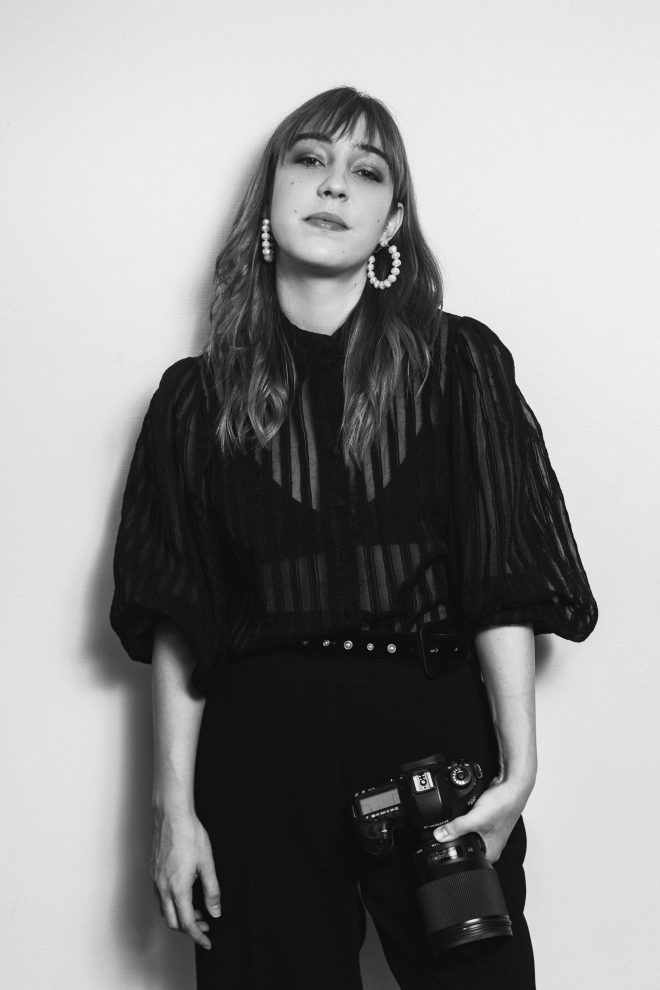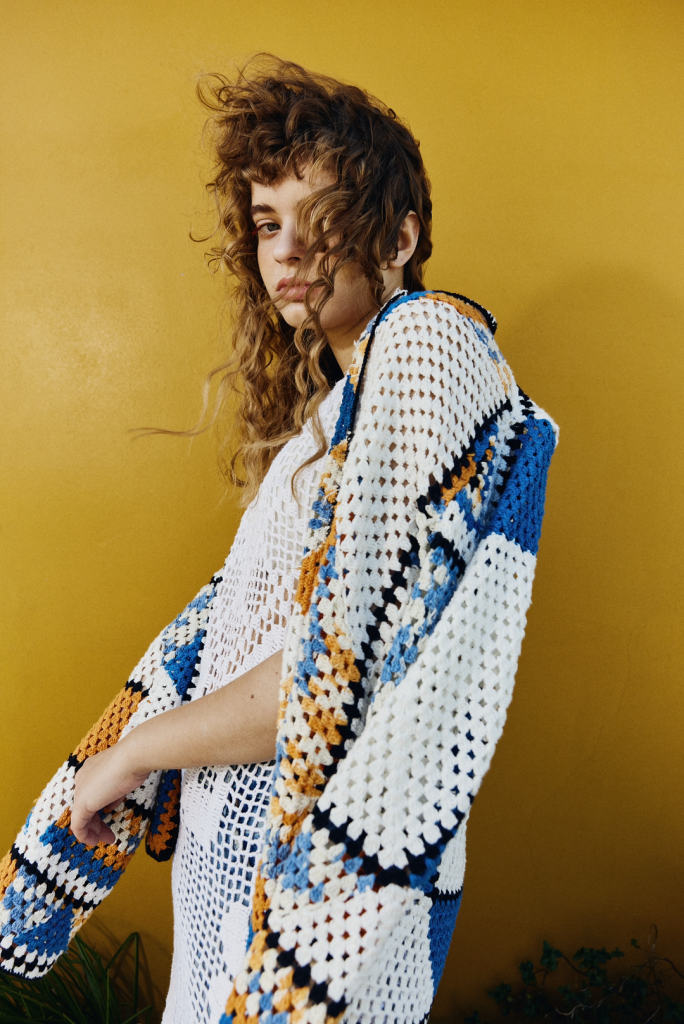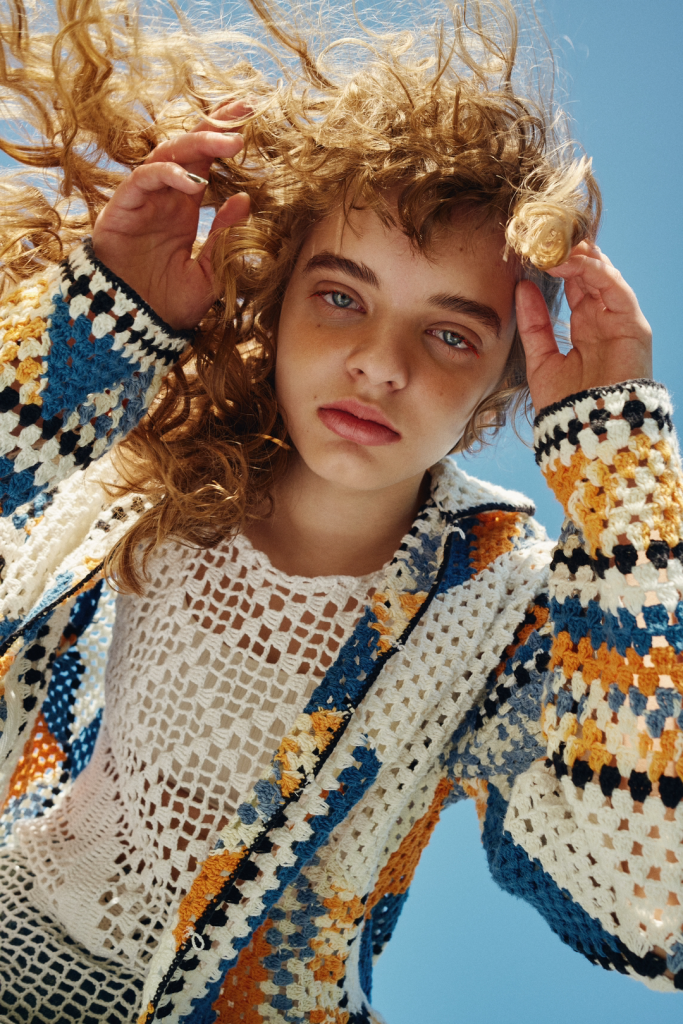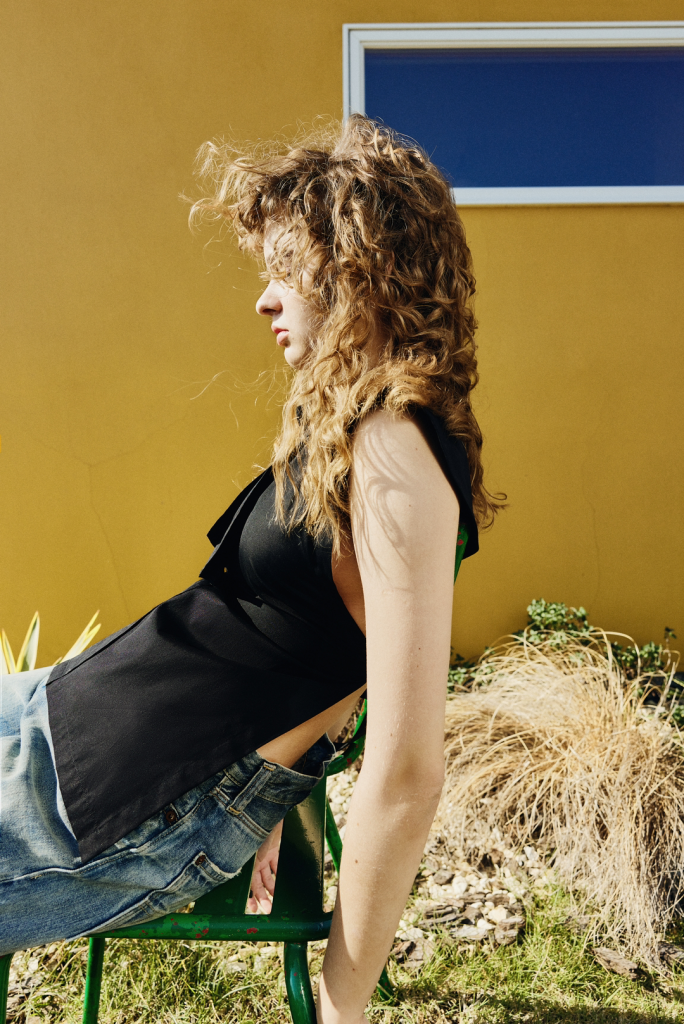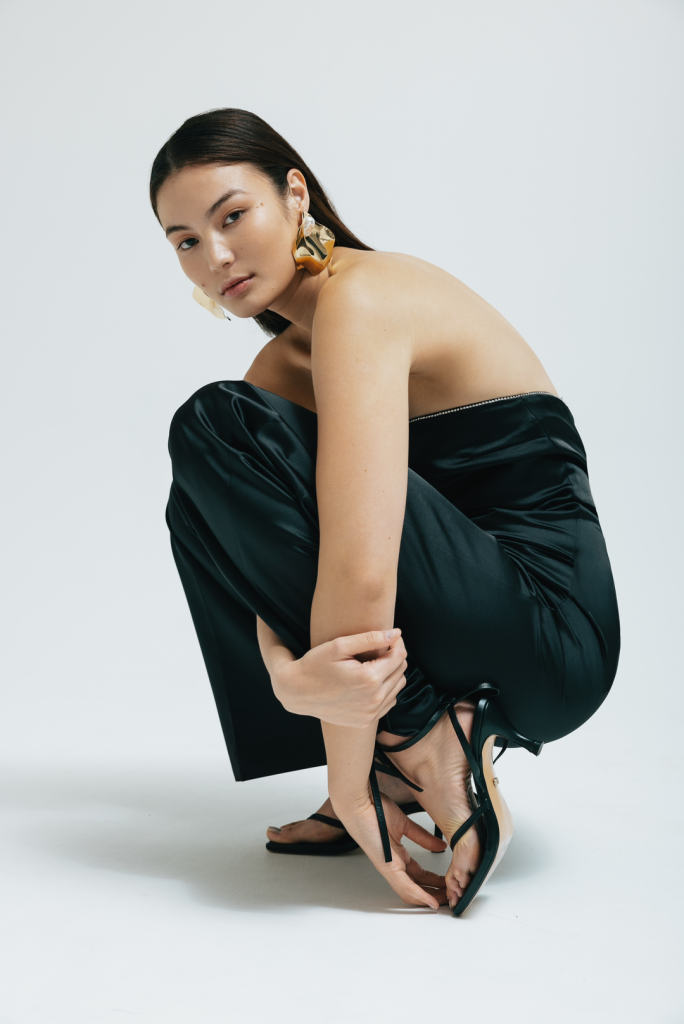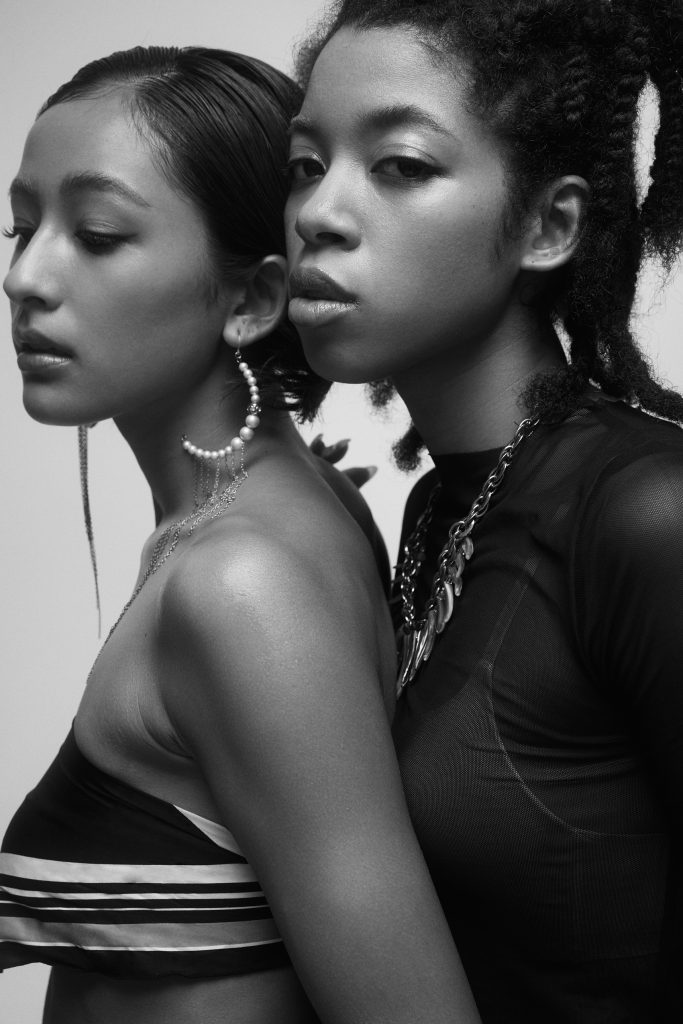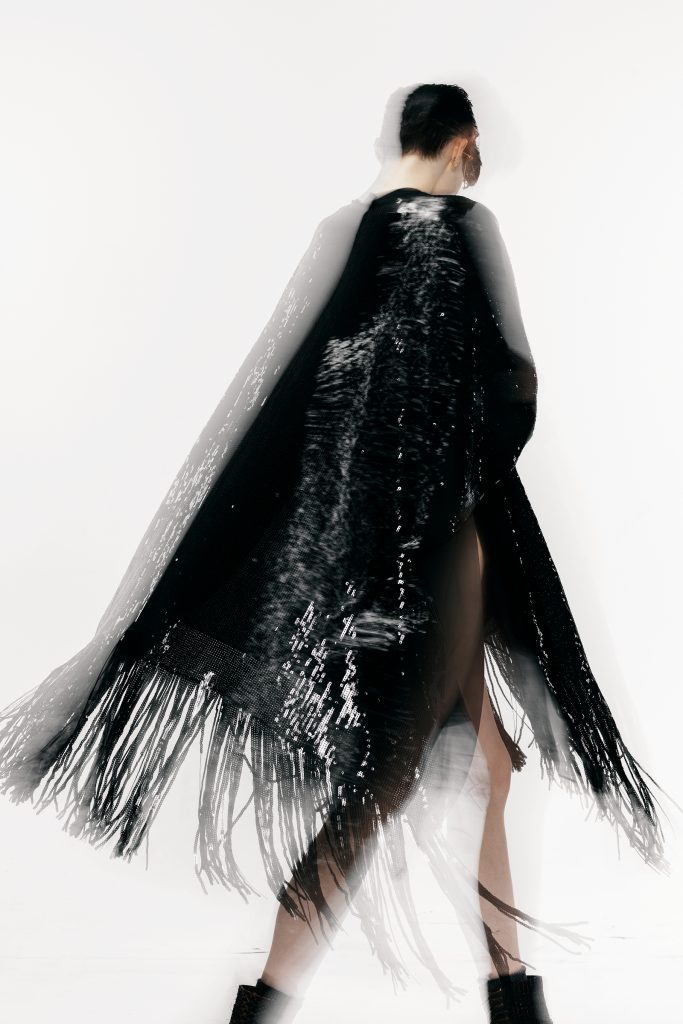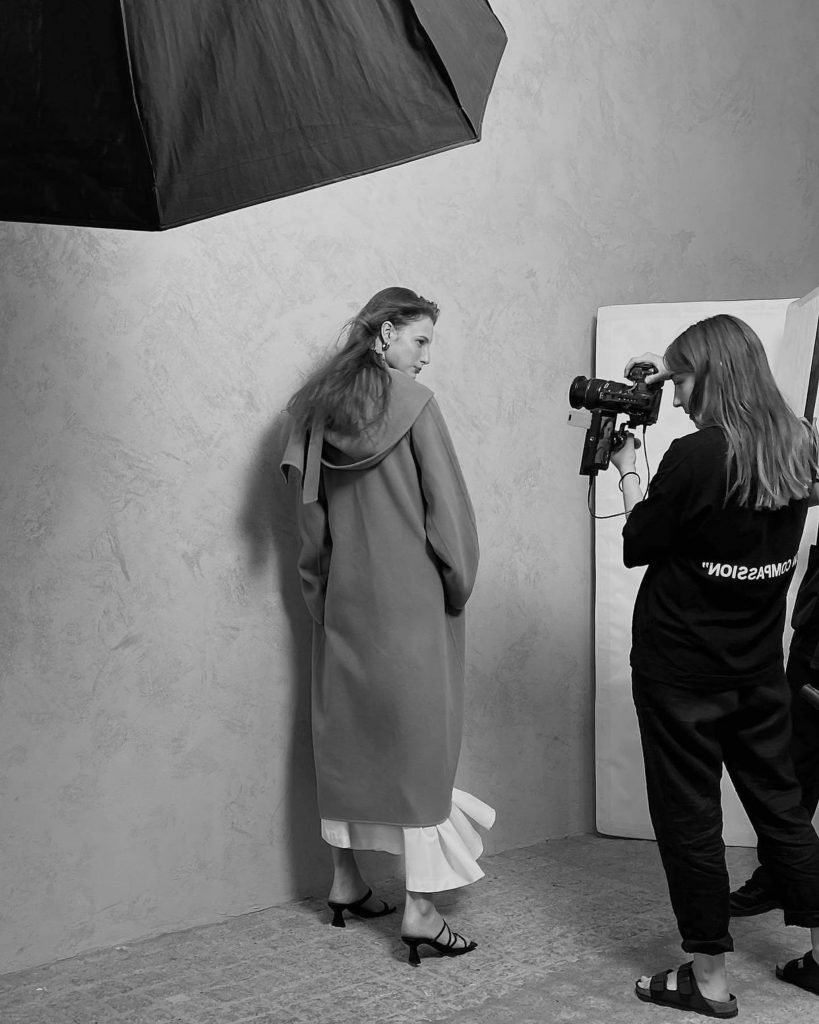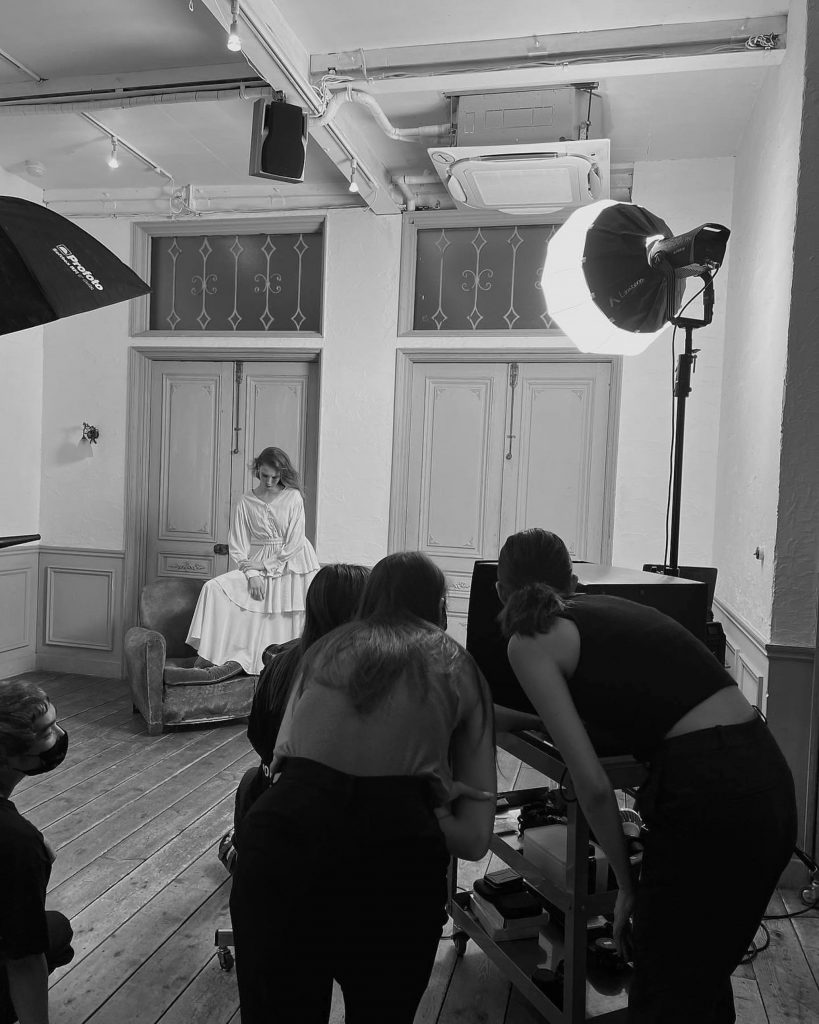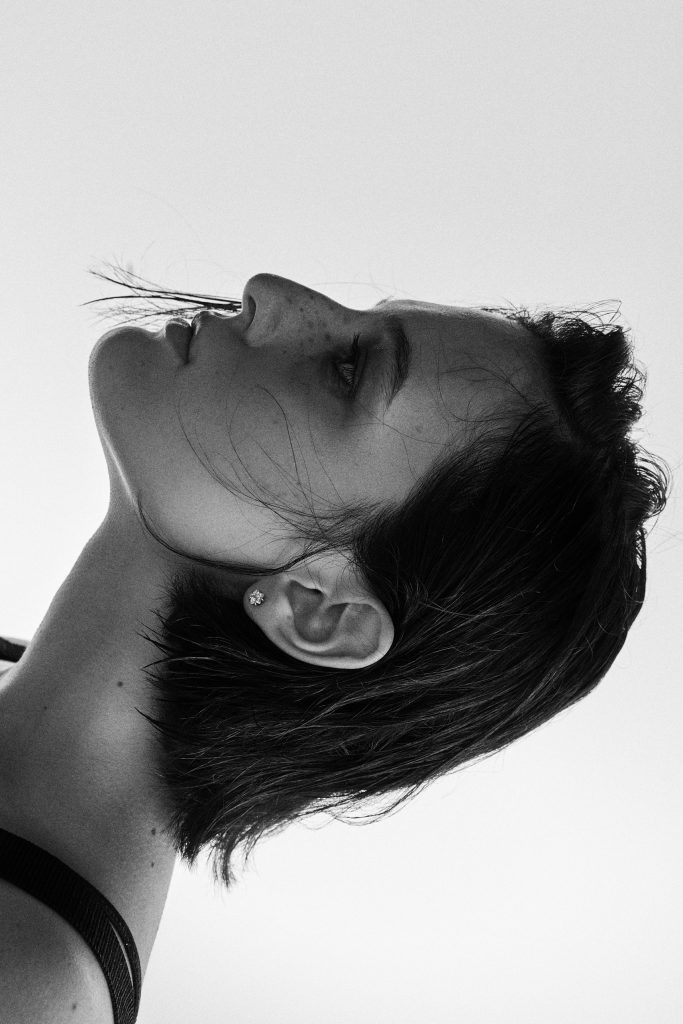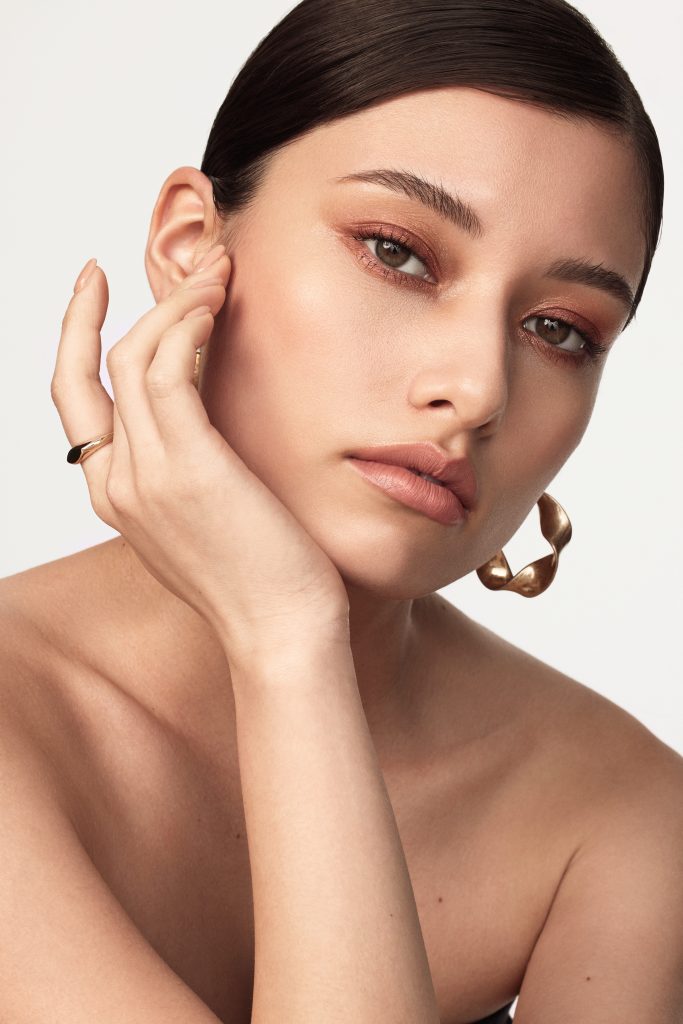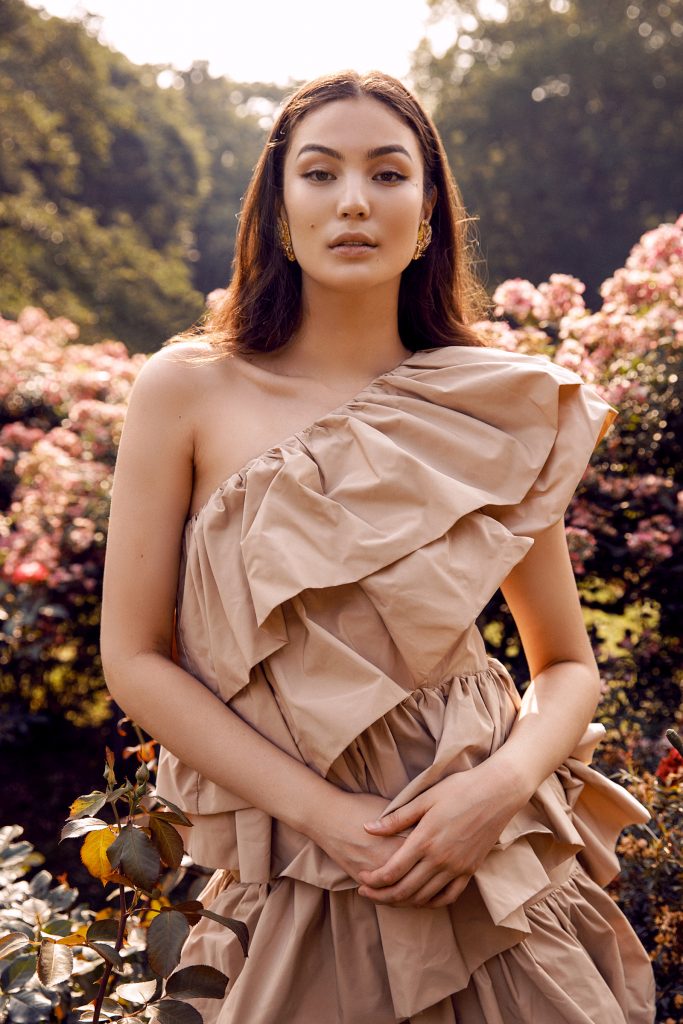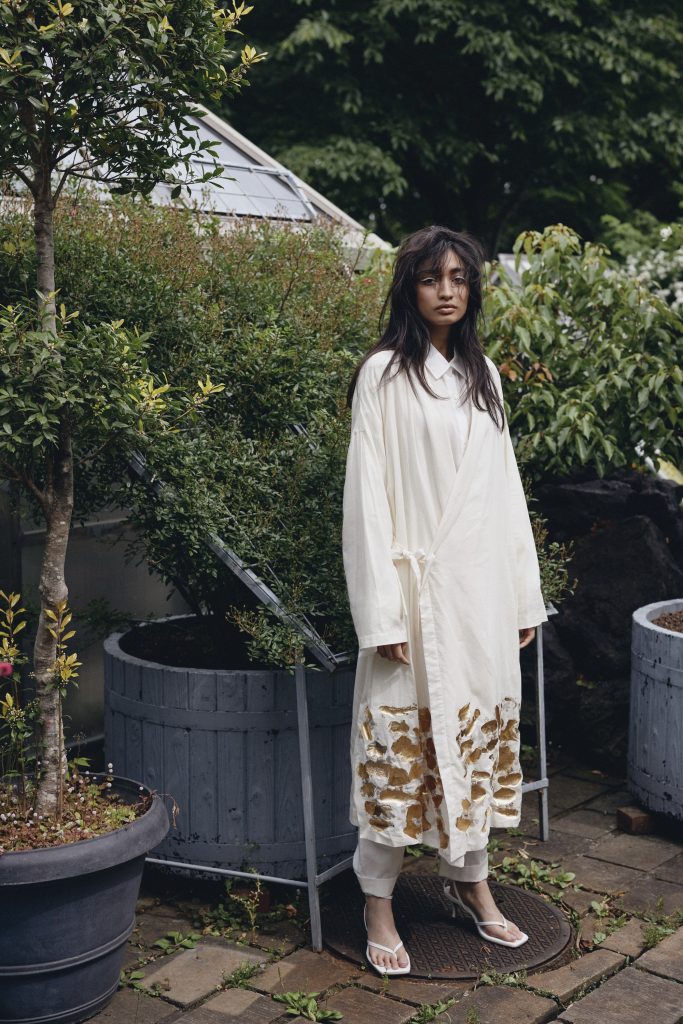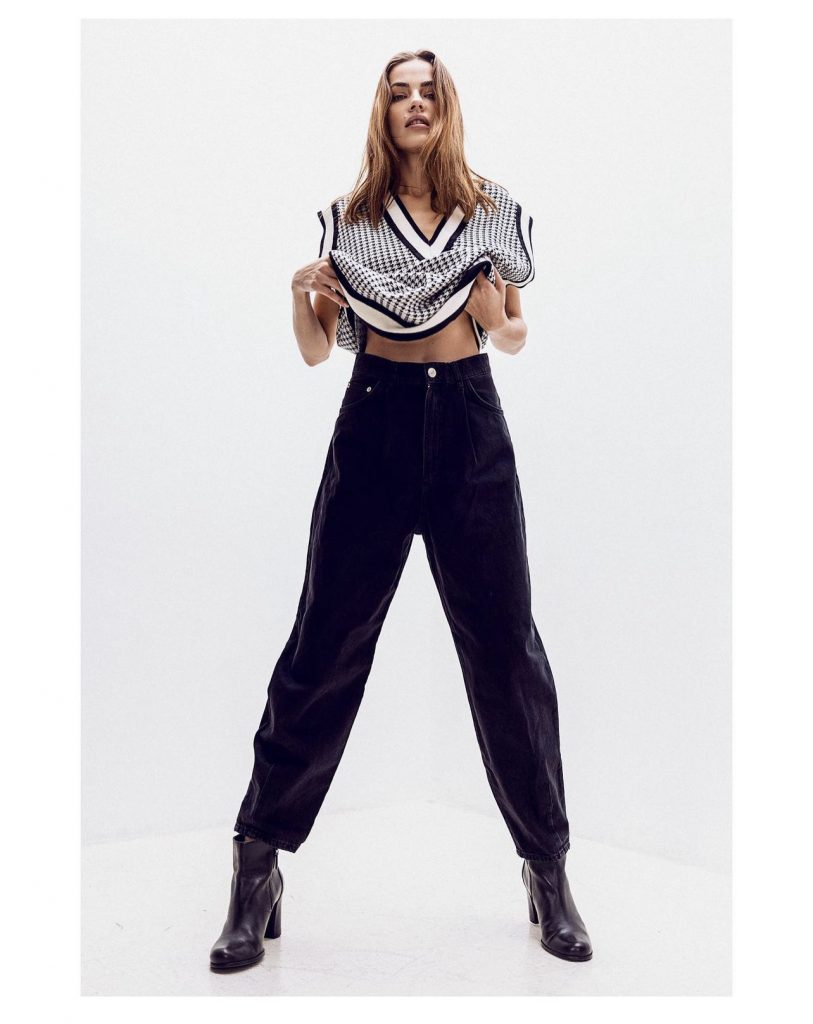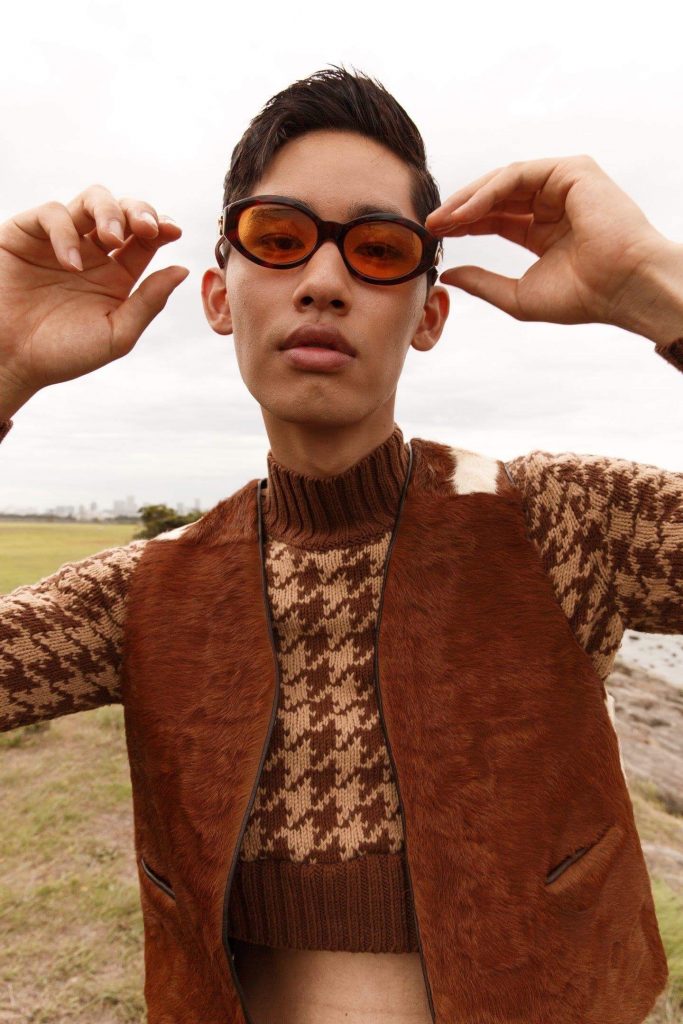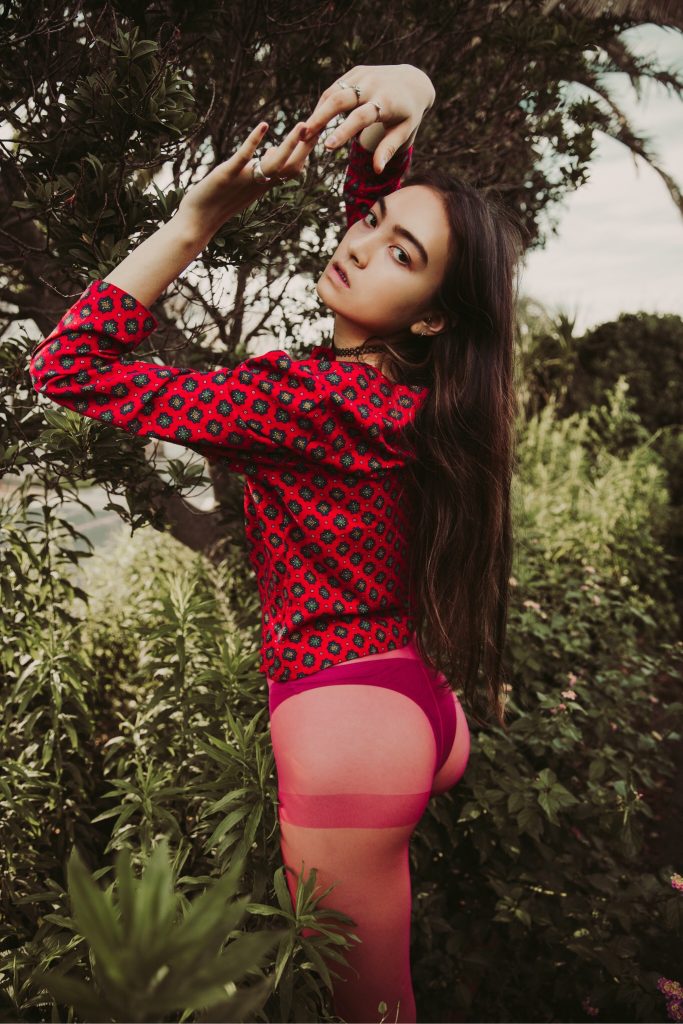In the ever-evolving world of photography, there are trailblazers who defy conventions and reshape the industry with their unparalleled vision. We had the honor of sitting down with Ivana, a fashion photographer based in Tokyo. Starting as a street photographer her talent has led her to the world of fashion, where she collaborates with renowned brands. Join us as we explore Ivana's creative journey, the invaluable lessons she learned along the way, and her unique perspective on navigating a male-dominated field.
ー Thank you so much for taking your time to talk to me today! For those who might not know you yet, would you mind telling us something about yourself?
I'm Ivana. First things first (laughs). People call me Iva because it's shorter and easier to remember. I'm a photographer and I also shoot videos. I've been in Japan for seven years now, but initially I was a research student here at Tokyo University of Foreign Studies. And then after I graduated I started doing this freelancing job being a photographer. I also like wearing different socks. I'm a big fan of Adidas! I also like coffee and black sesame.
ー Wow. That's specific (laughs).
It's one of the minor things, but it's still interesting! (laughs)
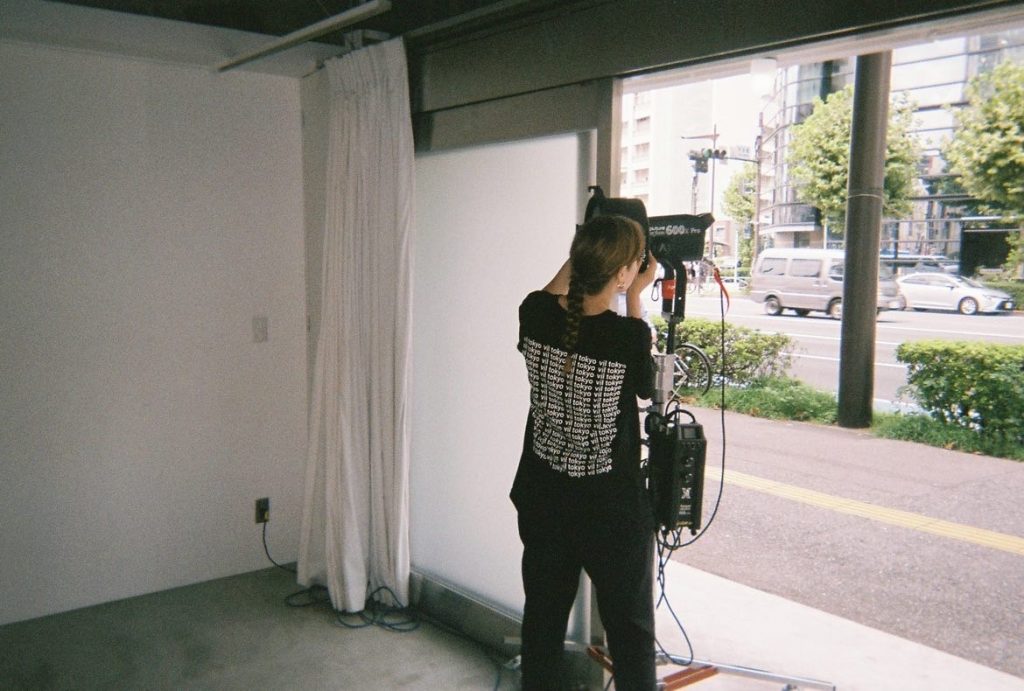
ー So how did you get into photography, and especially fashion photography?
Well, I'm not really sure, but when I graduated from university, it was necessary to start doing interviews for future companies, and I was pretty much not interested in that. So I had a little bit of a motivation boost from this guy at my university who suggested I should be freelancing as a photographer. It wasn't really a concept that I had in mind that could be feasible or doable at all. As a foreigner in Japan, being a freelancer is equal to financial suicide. However, him saying that made it seem like "okay, so if another person is suggesting this, maybe this is not supposed to be such a disaster, maybe it's okay". So I did that. It was a very, very steep change. One day I was a student, the next day I was already telling people that I'm a photographer.
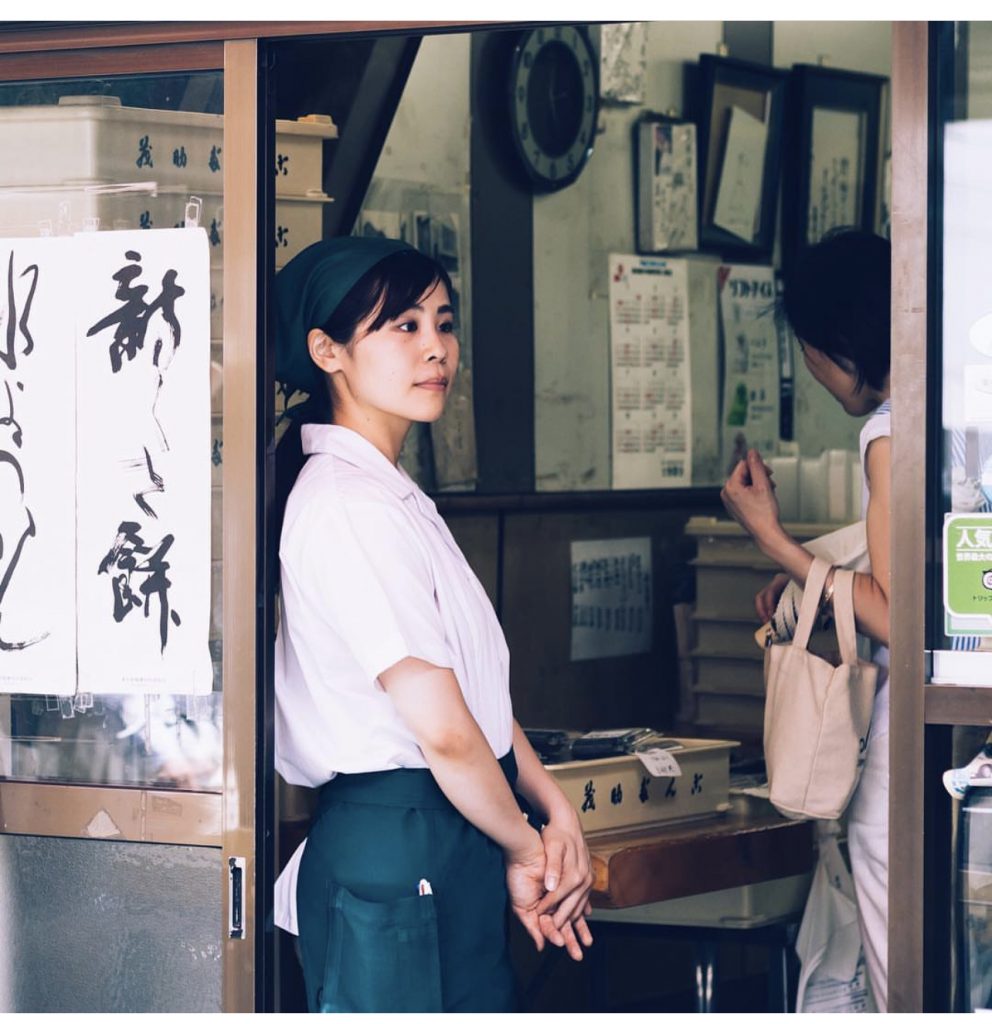 work from 2014-2016
work from 2014-2016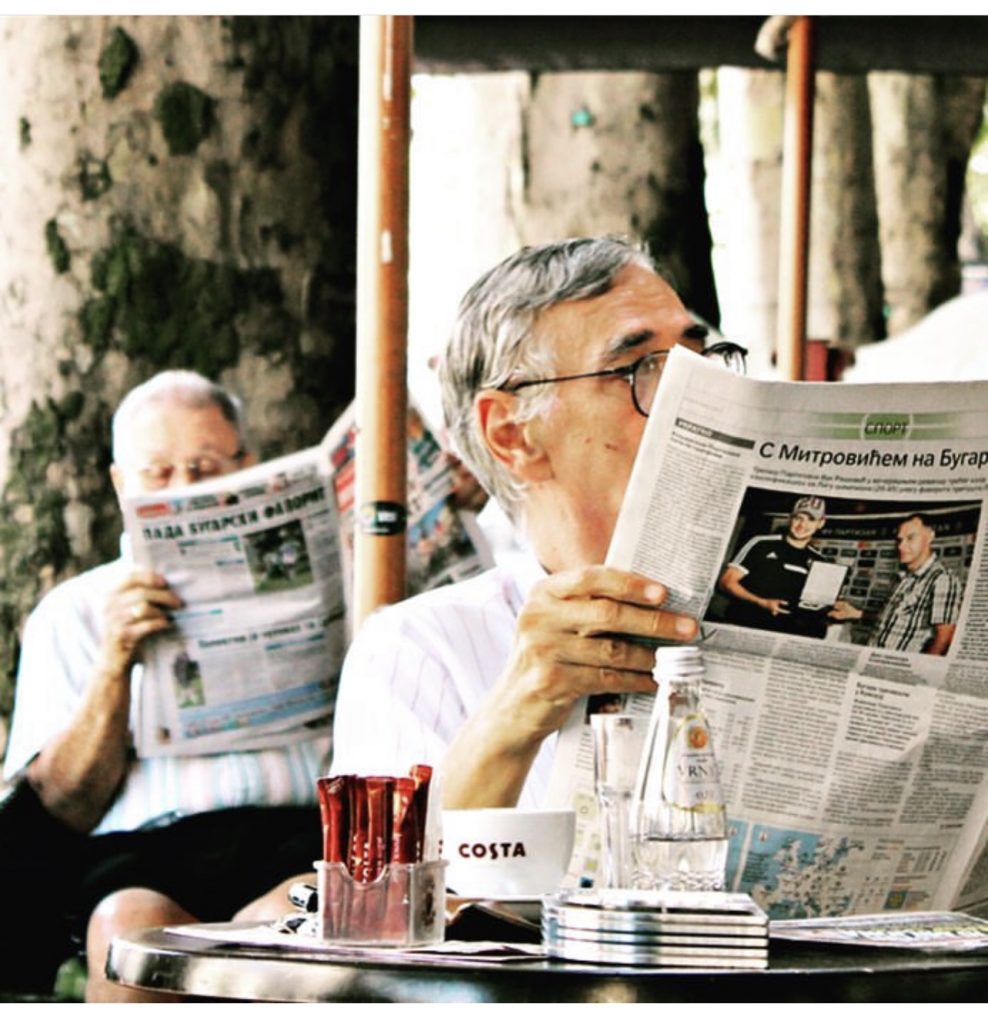 work from 2014-2016
work from 2014-2016
ー But you were already taking pictures during that time, and that's why he suggested it?
I mean, not not really that much. I was mostly taking street photos and not in the sense you would think of today. There are so many good street photographers and their work is amazing. Mine was horrifying. It was just random snaps of random things in the street, not really thought out compositions. And with that, I have decided to start (laughs). It was just a hobby, honestly. And then I was very interested in portrait photography in the beginning, I was taking photos of people. However, at some point, maybe a year into it, I was trying really hard to elevate my portrait photography and make it more interesting. Because there's not much you can do about portraits. It's about these people that you're taking photos of and from the things that I can do for my portrait photography, there isn't much. I can find super interesting subjects, but that is not something that I can do personally to improve what it looks like. Then I started experimenting with including more clothes into this whole situation and thinking more about the styling and the backgrounds and everything. Turns out, most of the things that I found inspiring and aesthetically pleasing was fashion photography. So it kind of just bled into it. My portraits just kind of flew into fashion photography and then I realized that I've actually been interested in clothes and weird clothing combos since I was a kid. I used to dress myself to my mother's horror. And yes, I used to cut my own hair as well (laughs). That was also horrifying. There are pictures of me with completely ruined fringes and some crazy outfits. And I realized it's all connected. But the thing is, I realized these things after it was already flowing into each other. And then for my presence on instagram or online, I started getting more and more bookings that were clothes related rather than portraits. I also used to shoot a lot of album covers for music artists and their live gigs and then portraits for different sorts of artists. And then, before I knew it, it just started being more clothes related, like catalogs, lookbooks, stuff like that.
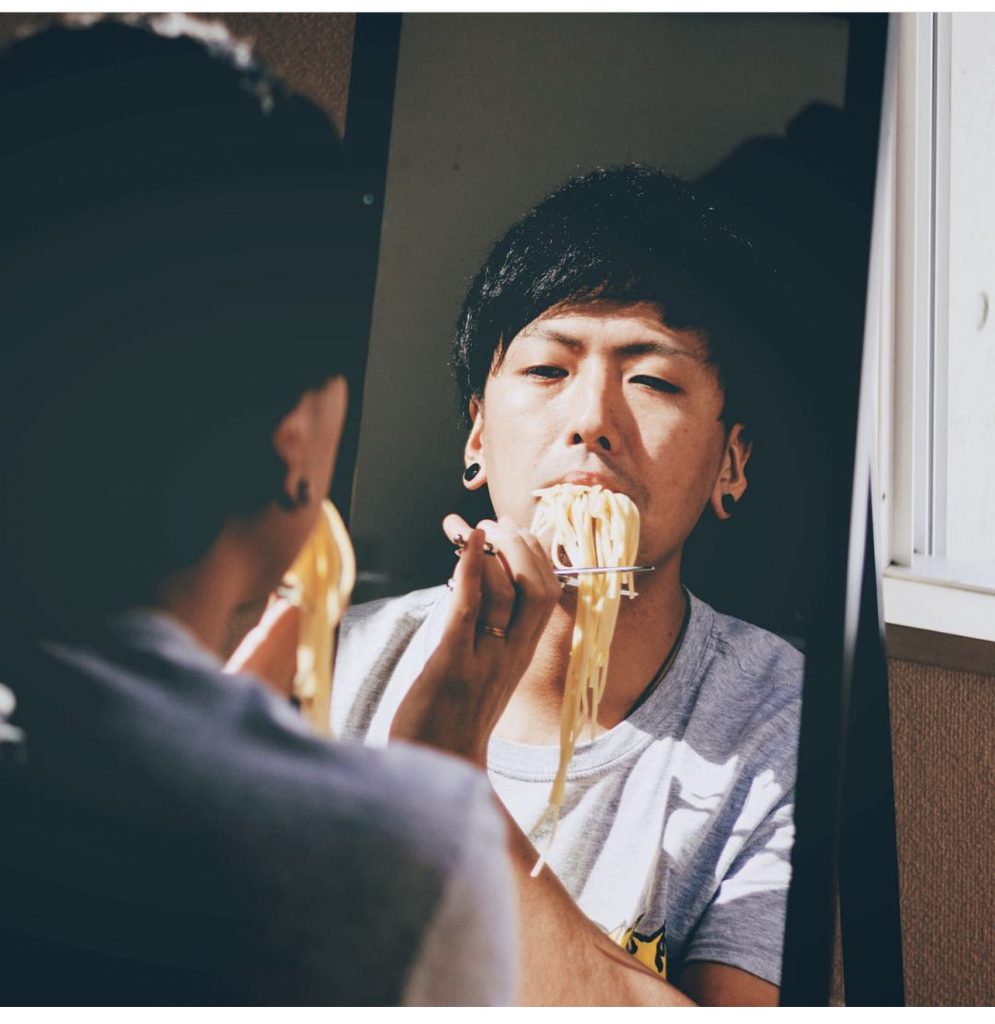 work from 2014-2016
work from 2014-2016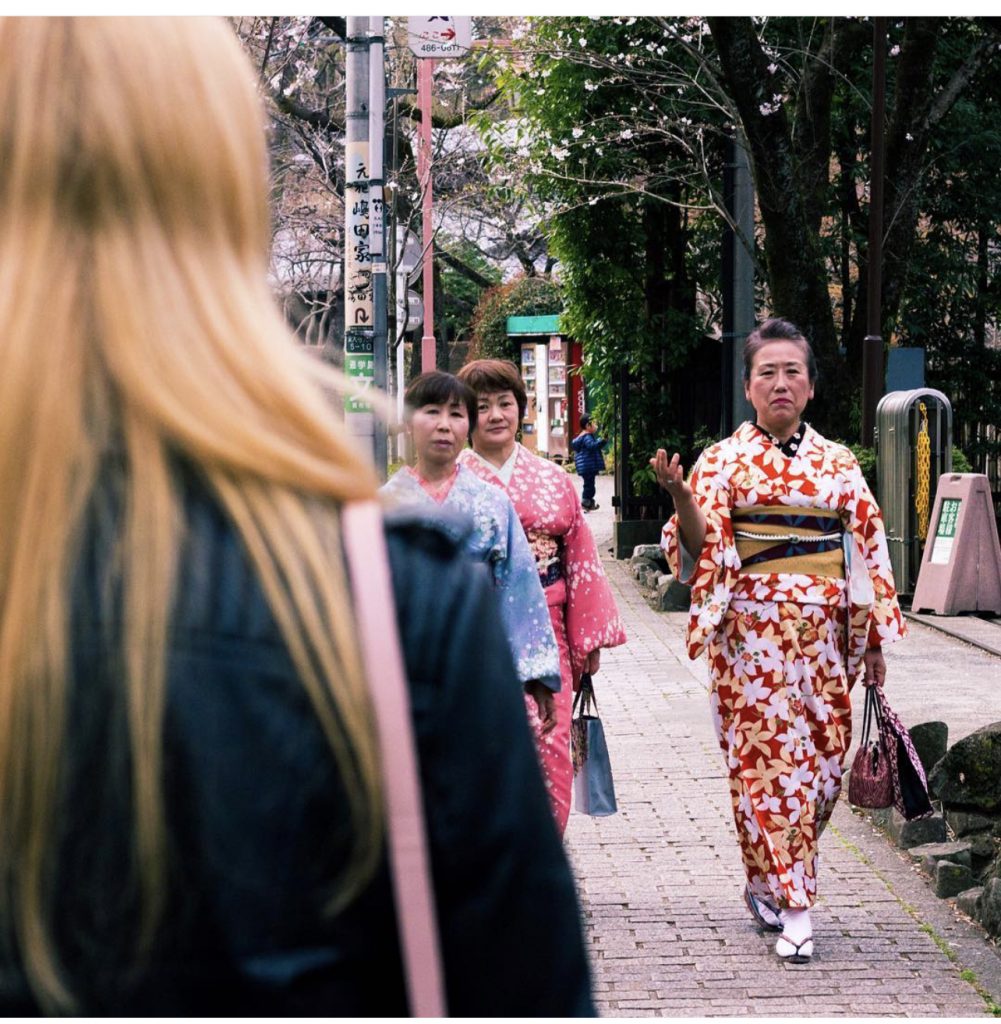 work from 2014-2016
work from 2014-2016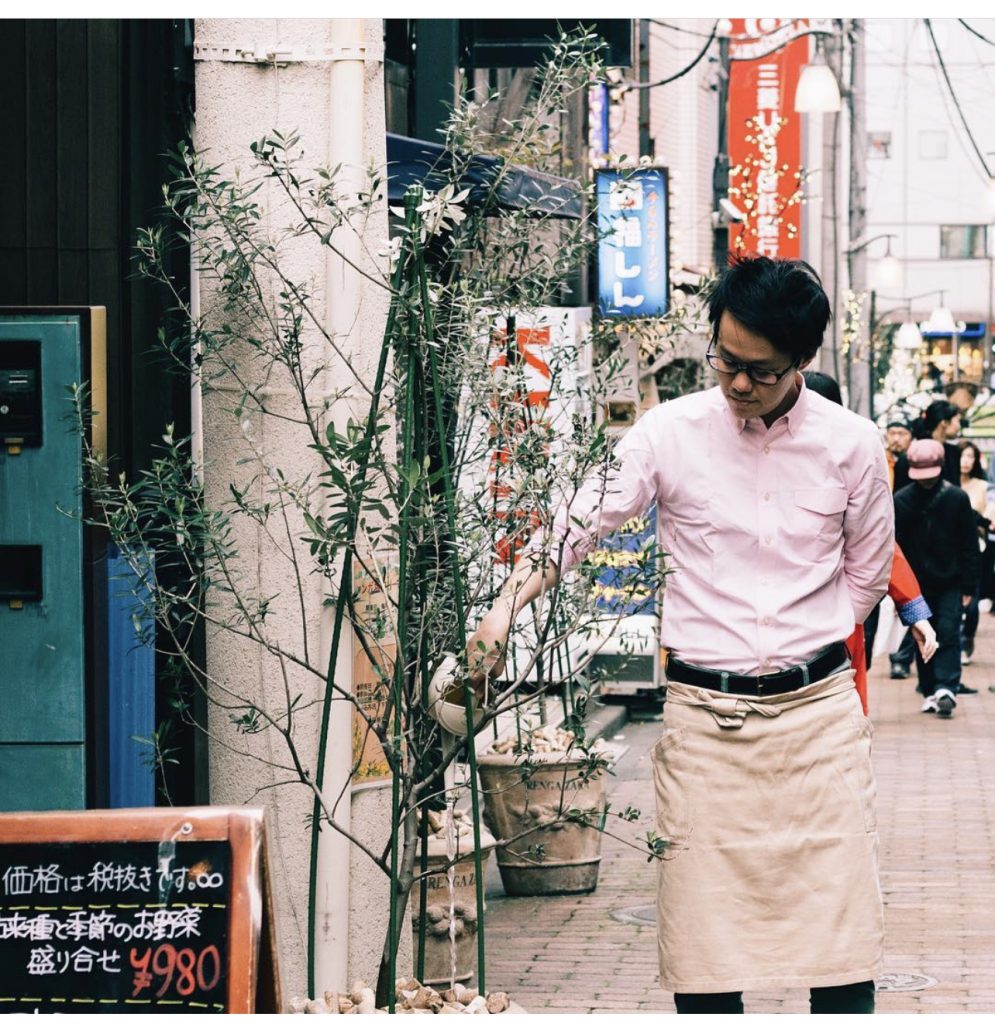 work from 2014-2016
work from 2014-2016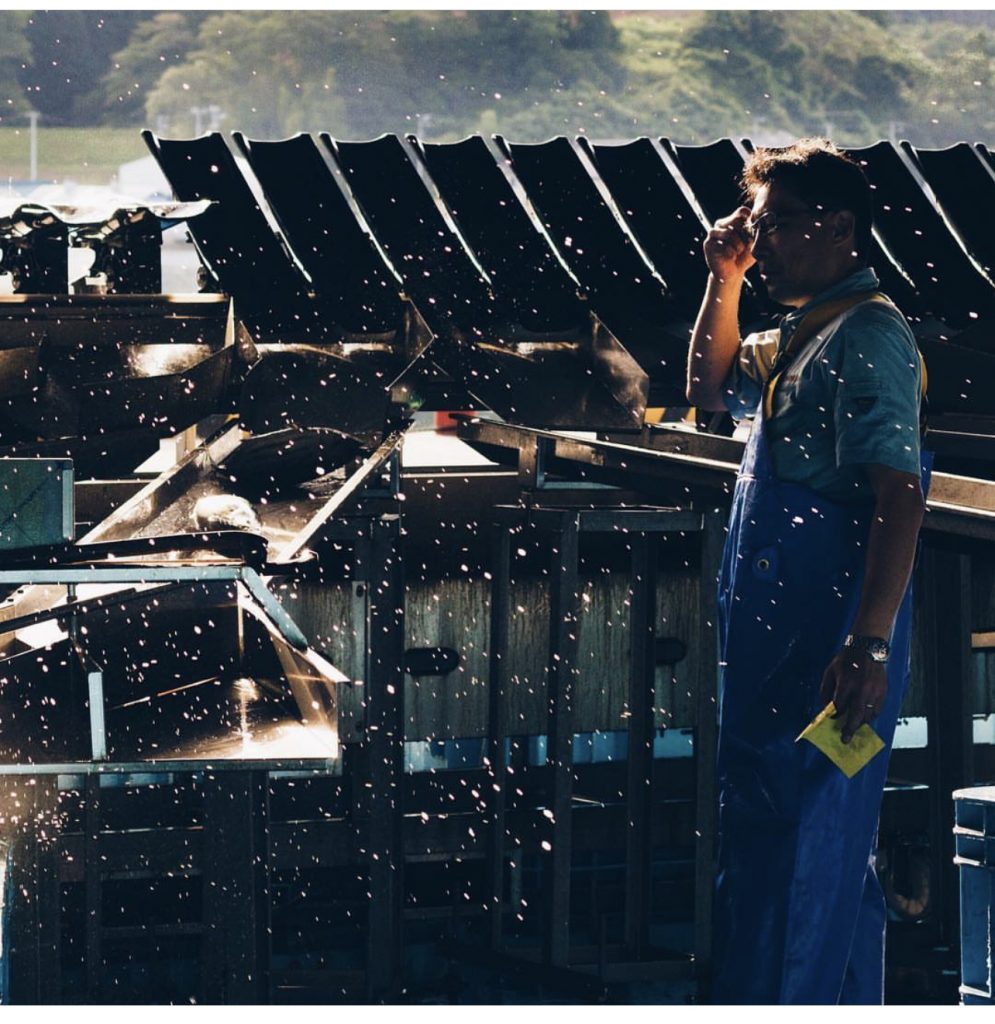 work from 2014-2016
work from 2014-2016
ー That's really cool. And was it difficult in the beginning? You said, it was a sudden change, but what were your first steps to get your foot in the door?
I really don't know. I think the first step in getting my foot in the door at photography was making my own website. Back then my instagram was absolutely horrifying, you would not believe the mess it was. You would never tell this person actually takes photos, so I realized that I need some new photos and a new portfolio. What am I going to show to these people who I'm telling that I'm a photographer? So I learned how to make a website in like three days. Made the website. I had maybe ten photos in my entire portfolio that was mostly me forcing my well-dressed friends to pose for me. I would ask them to bring their nicest outfits and I would choose locations. I took like ten photos and that was it. I put them on my website and then I would shamelessly approach freelance models in Tokyo saying "This is my website and these are my ten photos that I've taken so far. Would you like to do a test shoot with me?". And for some reason, by some sheer luck, they would say yes.
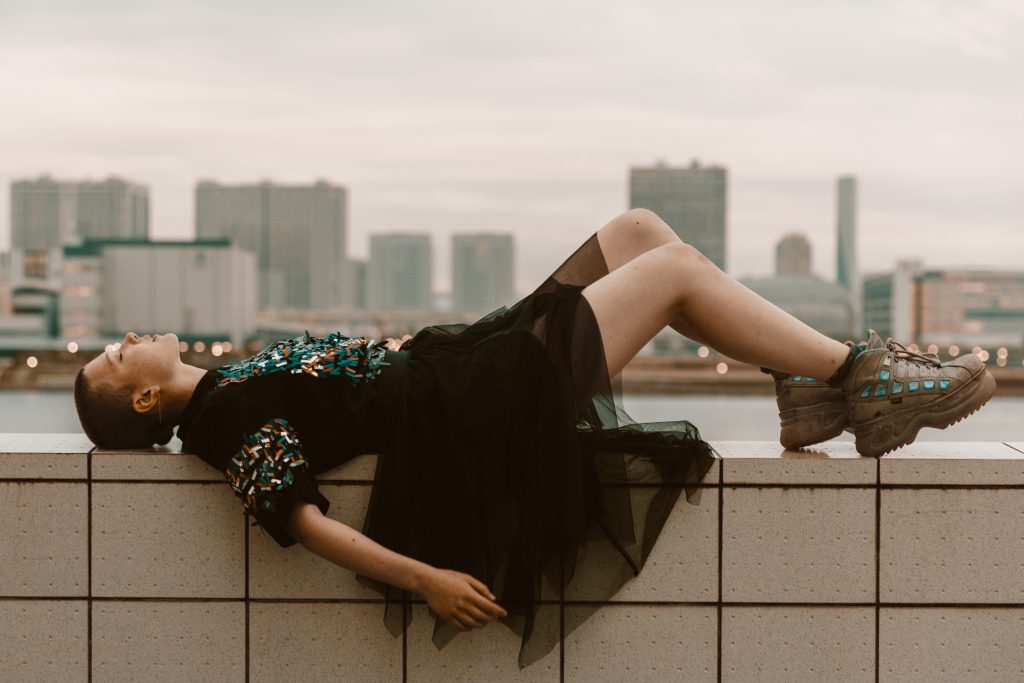 work from 2017-2019
work from 2017-2019
ー Or maybe they agreed because you were good (laughs)!
But I was completely inexperienced. And those ten photos were all that I had. So without any experience on how the photoshoot should look like or what their (models) or my expectations were, I would be making these photoshoots, organizing them. I would go all out assembling outfits, thinking about places, making the schedule, the whole timeline. I thought that the more I do, the better it's going to be, especially since I needed new material considering how empty my portfolio was. I was shooting so many times a week that I lost count of how many photoshoots I've done. The tempo I've set up for myself was kind of savage. And that was it. Then for some reason, their model friends heard of me and then other people heard as well. And it was just spreading like wildfire.
ー That's really cool!
I just think I'm lucky. There's like a couple of freelance models here that are still living in Tokyo, I owe them my everything because they are the first people who said yes to my complete inexperience. And they were experienced at the time. They were already doing this job for a couple of years and I was the newbie. And they said yes. Thank you, guys (laughs).
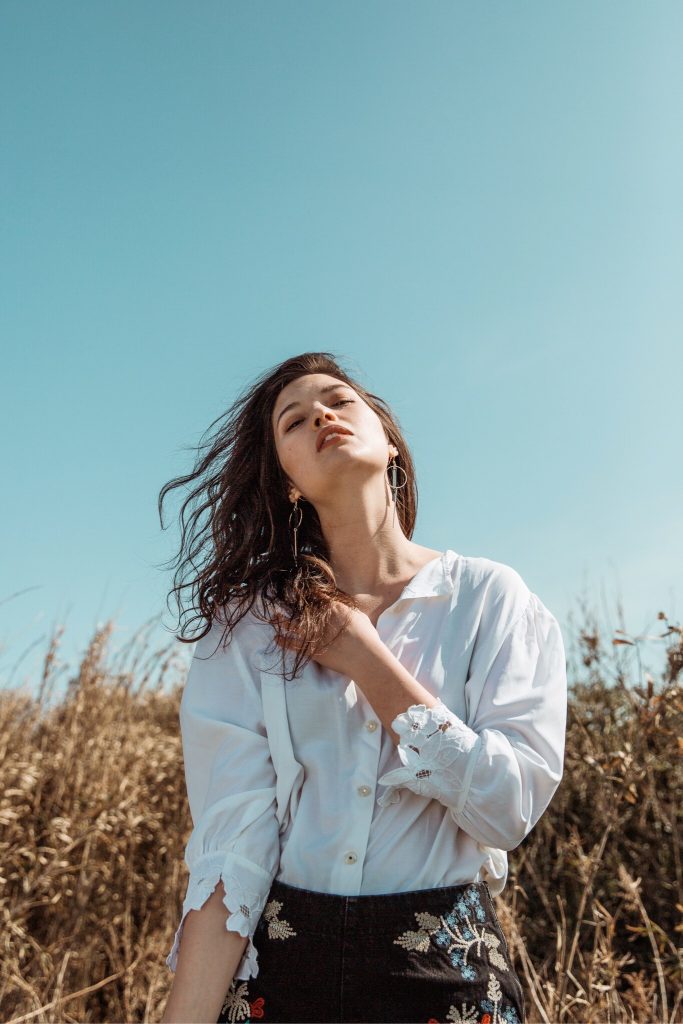 work from 2017-2019
work from 2017-2019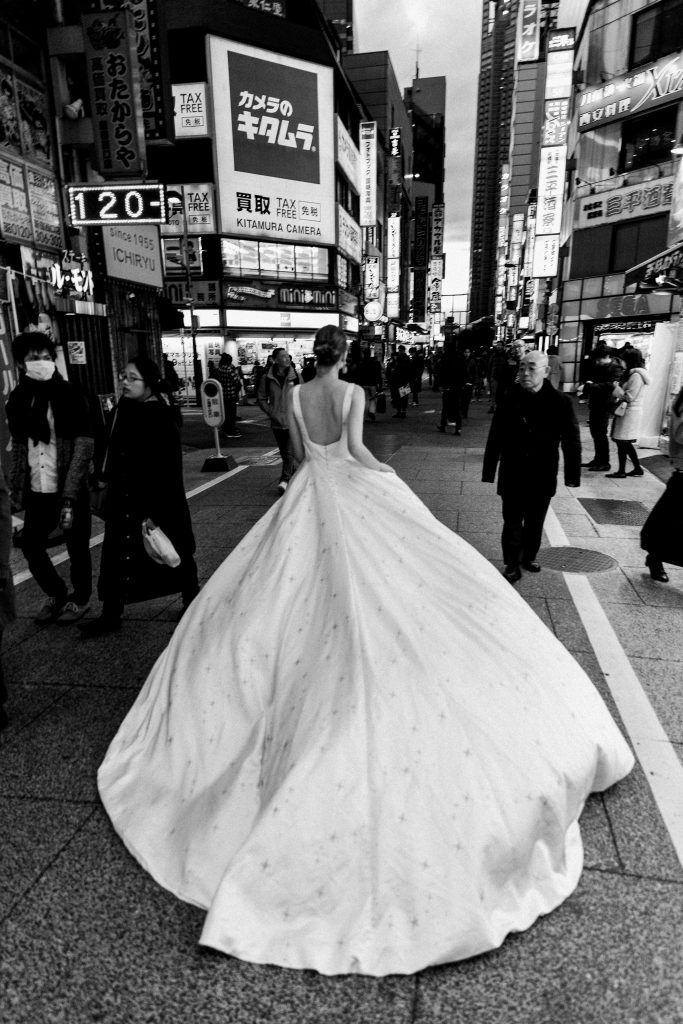 work from 2017-2019
work from 2017-2019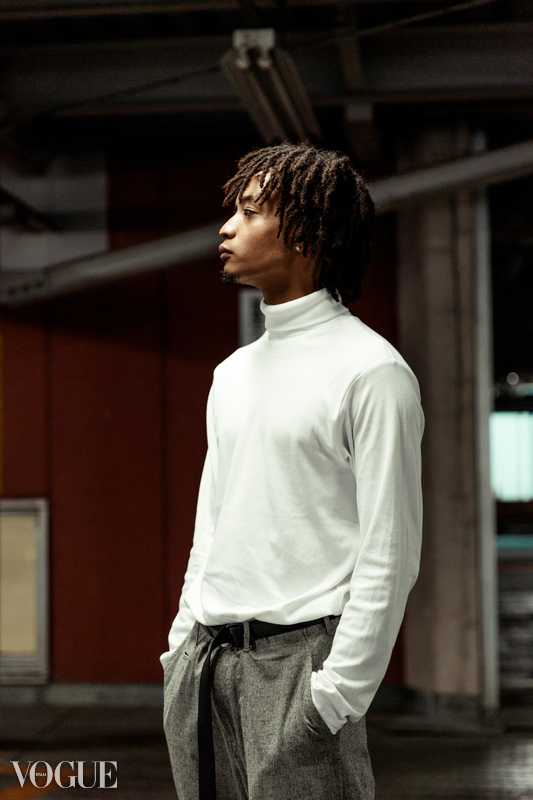 work from 2017-2019
work from 2017-2019
ー Everybody has to start somewhere. You won't get a job without experience. But without the job you won't get any experience. So it's…
An endless loop!
ー Exactly! But now that you've had so much experience, what is your favorite memory, or favorite experience as a photographer from the many that you had.
I have a couple and both of them were in 2019. That was my year (laughs). For some reason there was a lot going on and a lot of people coming and going from Japan. Probably the year with the biggest amount of foreign visitors and tourists from abroad. And there was this men's fashion blogger, who reached out to me to do a brief photo shoot for his Tokyo content. I don't shoot men's fashion usually, but I took it on anyway because I really liked his style and he's been in the business for a very long time. And considering he liked my work, I was very open to it. We did a photoshoot and then he came back again and we did another one. And then, when I was visiting London last year, I was just walking down the street with my makeup artist and he came up on the street staring at his phone. It's been three years since we last saw each other! He looks up and I'm like, "Matthew!". He looked at me, but he couldn't place me because I was not supposed to be in London, but Tokyo. And then after three seconds he realized that I'm right in front of him. "Oh, my goodness! What are you doing here?". That was such a the-world-is-so-small kind of moment for me. It was absolutely amazing. Because I think the most important thing I got from this whole job is probably the people I've met. And the world is too small. You don't keep in touch, but then I met him in the middle of the street for no bloody reason. He was just there. That was amazing!
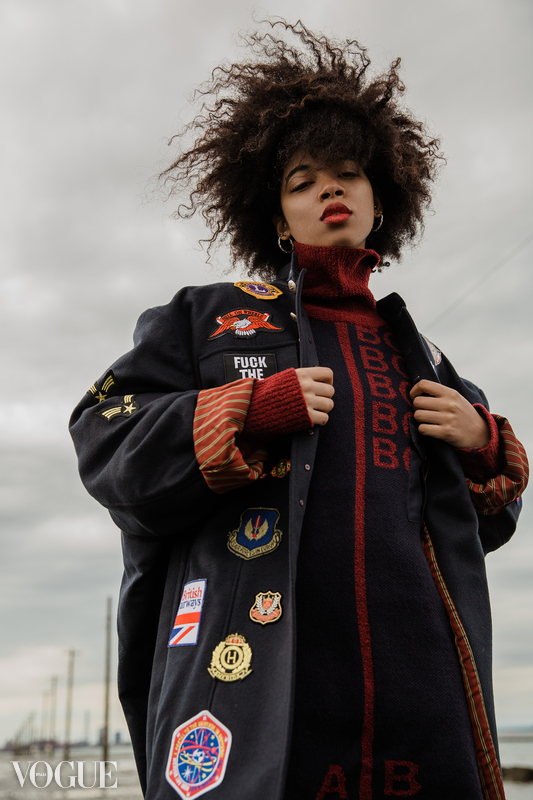
And the other one is, there was a band requesting a music video here in Japan, so my company took that job on. After their Korea and China tour; they would be coming to Japan and we were supposed to shoot a music video. However, their videographer canceled the tour, so it turns out me and my partner were supposed to go with them. So we went. It was tedious, to be frank. I am not a very flexible traveling person, or didn't used to be. And it was a lot! Especially China being a massive country. You need to change five means of transportation to reach a live house or concert arena. So it'd be like going from an airplane to taking the bus and then the taxi and then walking and then, oh my goodness, where the hell are we? We're in the middle of mainland China! The band is amazing, the performance is great. However, tomorrow we need to leave and go to this other place. They (the band) do this every year, most of the year, but for me? I was so exhausted, but we were having fun and it was amazing, going sightseeing before and after the live show. And then when I got home, after a couple of months, I realized it's like one of my favorite experiences ever. It was great. Can we go again? (laughs). So guess those two!
ー I think that happens a lot. While you're there, you're like, "What the hell? I will never do it again". And then you come back thinking, "let's go tomorrow!"
Absolutely! It is true. I had so much fun because there was a lot of stuff that you don't know. For example in Korea: I don't understand Korean, so I don't know what I'm eating, I don't know where I'm going. It's just a constant struggle trying to figure it out. But then when you get home, it's like, "It was so much fun. Can I go again?".
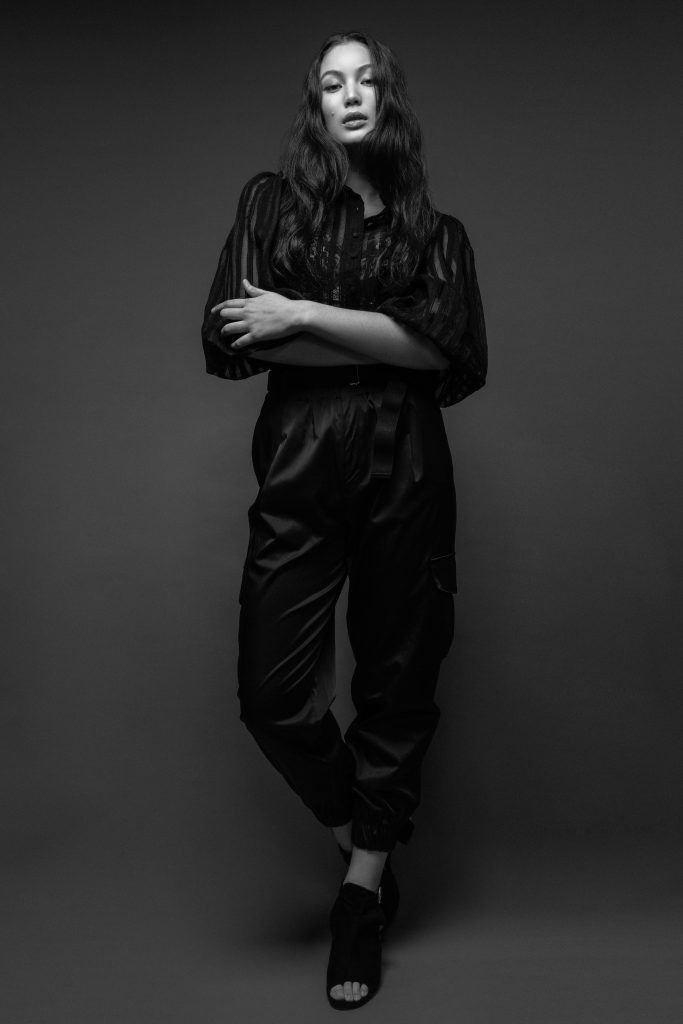
ー Amazing experience you got there! Would you say that what you do now is part of your goal or dream when you started out as a photographer?
Not really. I think my main goal when I started out was to be on Vogue's cover, like everyone else. But in the sense that Vogue's archives are forever. So I want to leave this kind of thing that's going to stay in someone's archive….buried (laughs). In the graveyard of the greatest, leaving some sort of legacy, even if it's just one photo. Good enough for me! But then I realized I would like to travel for work. To see all these different places, to work in all these different countries. And would also like to work with Serbian magazines because I'm originally from Serbia and that would probably be my biggest dream at the moment. Going back to the roots a little bit and then exploring Serbian sense of fashion. Because I've never worked in Serbia. I've only ever worked in Japan. So it's completely different. And I kind of want to go back and see what I've missed (laughs). I think those two and then my current goal: I'm looking for representation in Paris because I would like to move operations to Europe half of the year, but that's still in the making. So we'll see. I'm learning French as well. So I guess another goal is to be able to speak French. I'm not very good at it though (laughs).
ー But that's why you're learning it.
But it's going so slow (laughs)! I would think it would go easier since Japanese is one of the most difficult ones and I do speak it really well, but oh my goodness, French (laughs)!
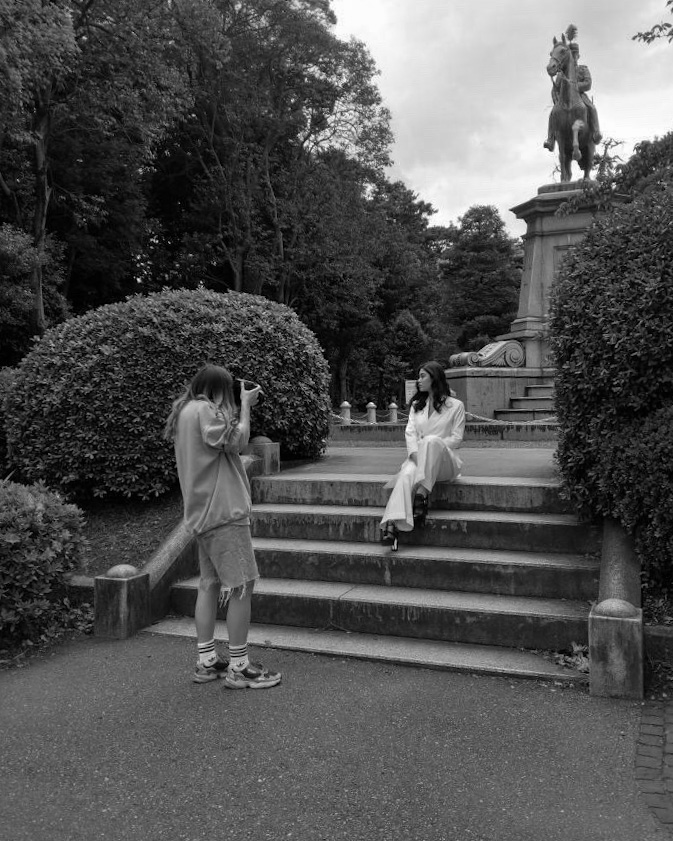
ー It is said that when you get older the brain doesn't learn that fast anymore (laughs).
I think so too. And finding the time to study is overwhelming, but I'm doing my best. I have classes two times a week. We'll see how it goes (laughs).
ー Wow, you're really committed.
I'm trying. I'm supposed to. Since I'm already planning to move a little bit away from Japan, I might as well learn the language.
ー But now that we are on the topic of dreams, you mentioned a bit already, but what would you say your process of achieving your goals and dreams is?
Going headfirst through a brick wall.
ー Wow (laughs)!
Not thinking at all. I don't think it's very clever. But I also don't think that overthinking is clever. I think somewhere in between, having some sort of plan and having hopes for the best. Those are a match made in heaven. You should have a sort of plan and maybe plan B, in case something goes bad. Me, on the other hand, I don't have a plan B, I'm just going to dive into this, maybe bruise myself on the way down (laughs). We'll see. Or we won't, you know?
I think having some sort of plan and having hopes for the best. Those are a match made in heaven.
Ivana
ー Or we won't (laughs). That's cool!
I would not advise myself, my younger self, to do the same thing over again.
ー Why not?
Hmm…I don't know. Because there is always a chance of things going wrong. For example, you get sick, you have emergency situations. So for these very urgent, very hopeless situations, you're supposed to have some sort of cushion. I honestly think that whatever problems people have, they might be able to solve them unless it's a health problem and they're physically or mentally unable to dedicate their time and effort. So for these types of situations, I think some sort of backup plan might have been necessary.
ー If you could give advice to your younger self, what would you have done differently?
I think it's more along the lines of having more intention behind every photoshoot. I still do personal projects like test shoots and collaboration shoots. However, I think that I've wasted a lot of time going about it like a fly. Without having any thoughts or intention about it. For example, how will this help me get to where I want to be, or is this close to my visual aesthetic? Having a sort of purpose makes it way more valuable and I was experimenting a lot blindly without any thoughts behind the whole process. But I think there's two reasons for that: Lack of experience and lack of a visual center point. Aesthetically, I was not sure what I wanted, which is kind of normal because, like I said, I barged into it out of nowhere. But I think if I sat down and thought more about where I want to be aesthetically, I think it would have made way more sense. So I would tell that to my younger self; sit down, think about it a little. What do you like? I'd probably come up with something.
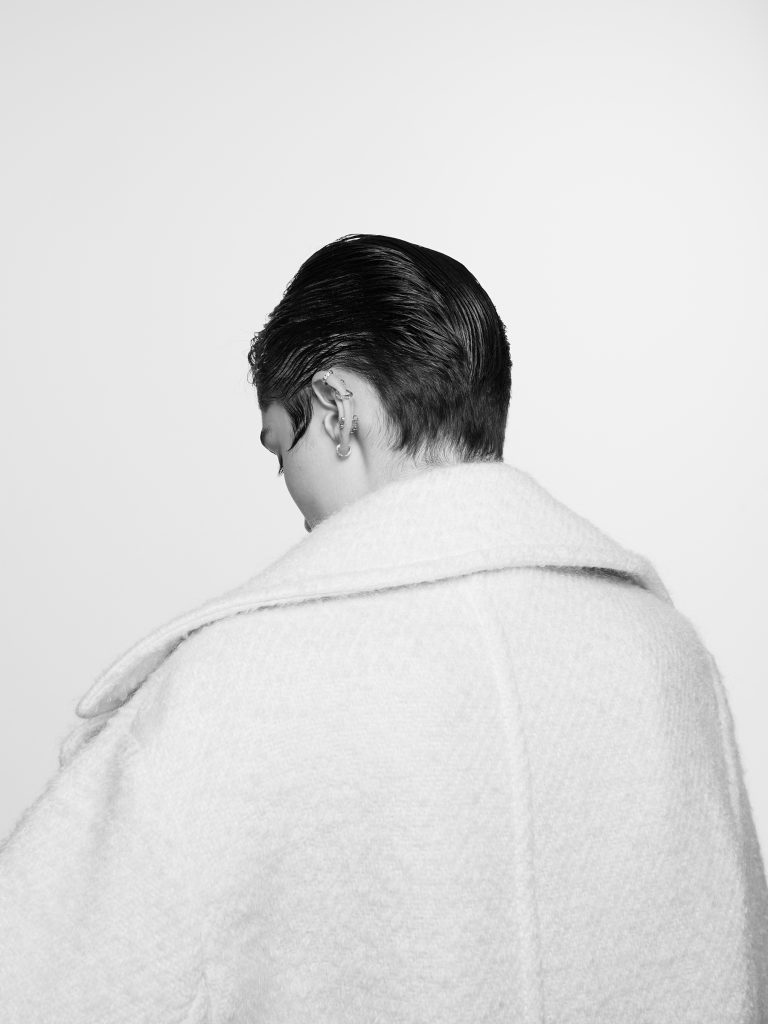
ー But do you feel that you still reached that?
I don't think so. I mean, I'm closer to where I want to be than ever before, but I think that also personal preferences, taste and aesthetic visual ideals change. So even if I did reach my current goal ideal, I think it would change after a couple of years. There are also trends in fashion. How they change, clothes change, people change, new models come and go. The medium changes. For example, film photography is super trendy right now, so I think those things are also important. Even if I'm close to what I want to do right now, I think it's good to change too. So might switch it up a little bit in a couple of years.
ー That's cool. So what would you say was maybe the biggest challenge you experienced on your way to where you are now and how did you overcome it?
My biggest challenge...I think I still struggle with this because I'm a really big introvert. Getting in touch with people and connecting with them. Just simply communicating. I think it's one of the biggest struggles I've had. Then and now. And also having a visual goal and the knowledge of who I am and what I want to do. When I get a suggestion for a collaboration shoot, I have a look now. I know if I like it or not, or if it's going to suit my portfolio or not. I used to just say yes because I wanted to practice or try something new. Right now I still want to try something new, but I know for what reason and for which purpose. And that was the biggest challenge, probably. And then, communicating and working with people. That changed a lot when I got signed by an agency here. I was supposed to suddenly communicate with my manager and his assistant every single day and with a little bit of practice, daily practice, it changed. So that's why I am sitting here, talking with you, because I'm not shy anymore (laughs). I think for any sort of hurdle, a daily dose of small practice works a long way.
ー But as you mentioned, you're not very extroverted and then you had to send out emails or contact models in the beginning…it must have been a big challenge!
Absolutely. And then try not to take things personally when you get rejected! Not that I got a lot of rejection in the beginning….but I get rejected by magazines a lot, because everyone does. For example, what you thought of for their next issue or these photos that you took and want them to publish, it's not what they were looking for. They have a different theme for their upcoming issue. So they're going to say no. Or it can be very small, like for example, their agenda is full. There's already enough photographers, there's already enough work to be featured. And they will say no. It's not personal! Or it really can be a simple thing: they don't like the one brand that you featured. It's not about you, it's just that the editor doesn't like this brand or this article of clothing that you used, so they will say no. And then in the beginning, when you're an absolute noob and you're so insecure and inexperienced, you take it so personally. "Oh my God, they hate me!". I just laugh at myself right now (laughs).
ー How did you get to where you are right now in that aspect? How did it change that you don't take it personally anymore?
Talking to people. Sharing experiences. When you talk to other photographers or fashion editors, or stylists or makeup artists, you hear different perspectives and then you realize that it was never about you. Clients rejected your proposal, they found someone else. It's okay! It doesn't mean they hate your work. They just found someone more convenient to work with, which is totally fine. But if you’re not talking to clients, or other brand PR people, you won't know these things and then you get in your head or get insecure. I think that's not productive for this type of job. Of course, I still have times when I do it. "Oh, man, I am so disappointed. I really wanted to shoot this editorial for this magazine! But they're not interested. Oh, no!". But how do you say...take the sadness in stride? It's okay, you'll get over it.
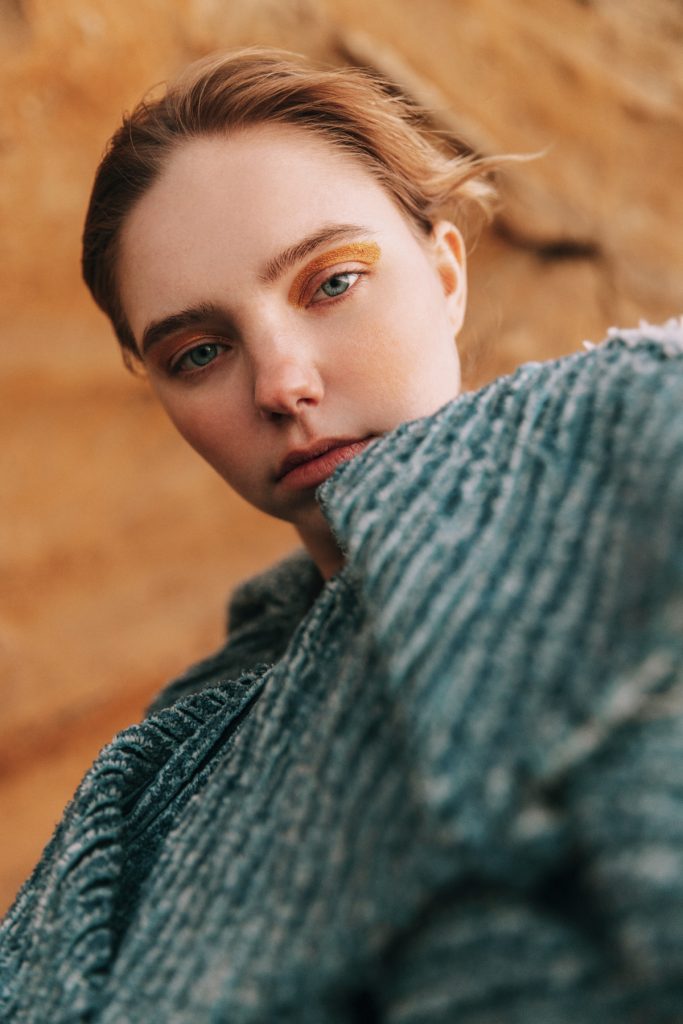
ー But do you get to try it again sometimes? For example, with a magazine, if it doesn't work this time, maybe it works next time?
Of course, absolutely! I think there is a line between being annoying and trying again. Usually people say that you should message them maybe every couple of months or maybe twice a year. If the magazine is coming only once a year, there's no need to message them every three months with your proposals, as they're only publishing once a year. There are also magazines which publish twice a month. It depends on the frequency. But you would want to reach out to them because you change, you get better, your aesthetic vision changes as well. So if you made this proposal and pitched it to them and they don't like it, it doesn't mean they won't like the next one or the next-next one. It just depends on who you want to work with. If it's a magazine you don't really care about being published in, there's no reason to pester them all the time. But if you really like this magazine and you feel like you have something new to offer to them, it's always good to reach out again. The same goes for the clients too! Because you update your portfolio and that's why we keep doing these test shoots and collaborations. So why wouldn't you show them this new work that you've made? Maybe they decide to book you for their autumn/winter collection. Maybe they carry you for the spring collection. You never know!
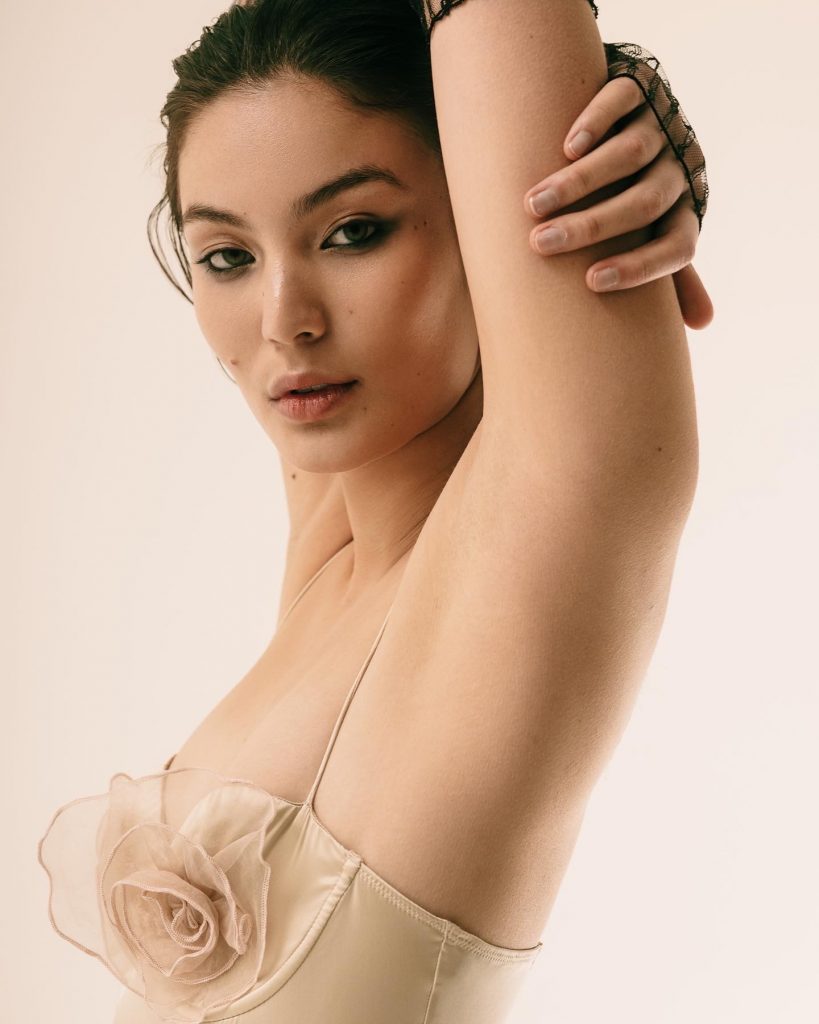
ー Oh, that's cool. That's really valid and important advice. And I think it's applicable not only for photography - no matter what, in life!
I think so, too. For any sort of creative field and freelancing.
ー And how would you say your experience freelancing in Japan as a foreign woman was? I think it's not easy for anyone, but being foreign woman in Japan…What was your experience and maybe the biggest learning you gained from it? Maybe you even have some advice for someone who tries to do the same.
Well, that's a difficult one. In fashion photography I don't really encounter many women. I've never met a female fashion photographer here. However, I've heard there are a couple. I think that being able to speak Japanese very well helped a lot. It does not limit my client pool, as it does not matter who I am going to work with. So I think that it's important to learn Japanese, otherwise it's difficult. I don't think I would have the confidence to deliver what the client is asking for if I couldn’t understand them. There are a lot of foreigners and foreign clients who want to shoot in Japan. I think it's not impossible to work here without knowing Japanese. However, I think there are waaay more opportunities when you can speak Japanese. As a woman, I don't think I've ever had any problems with that.
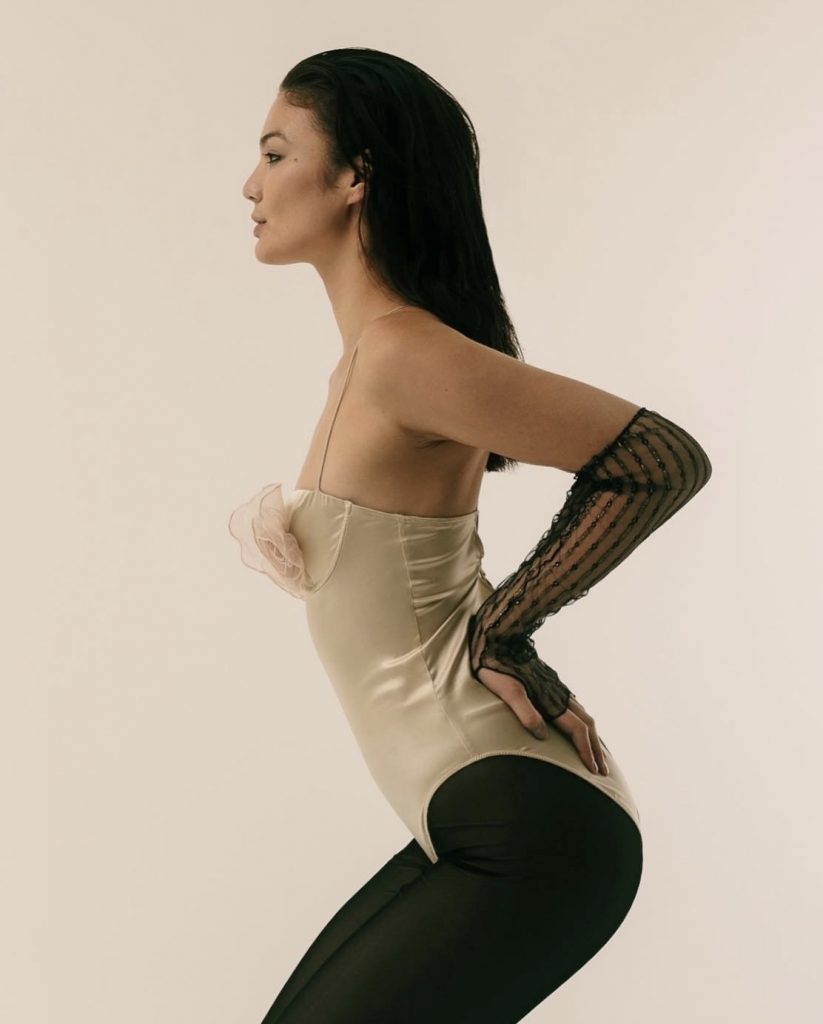
I have only one piece of advice: if you want to work as a fashion photographer and as a woman, you might need to hit the gym (laughs). Because the work is absolutely exhausting and requires a lot of physical strength, especially when you're working with a small team or you're working alone. You need to carry all the stuff. You need to have endurance. You need to stay at work for the whole day, put up the lights, disassemble them, take them back to the rental shop, go home, edit, sleep and go back the next day. It's exhausting and I think that's the biggest impediment for women, the lack of physical strength. Sometimes I struggle as well. When something is too heavy and I cannot lift it. Or when I'm shooting video, holding the freaking gimbal (laughs). I don't have strong arms, so I need to exercise to be able to lift it and keep it stable for a longer period of time.
I have a female assistant and I talked to her about the other sets she also works on. And there's a problem of logistics as well, or administrative problems. For example, let’s say the whole crew is going to stay in Okinawa for a shoot. They rent very cheap accommodation because the budget does not allow more and all the men are staying in the same room, Japanese style room, they all sleep together. If there is a female member of the crew, she would either have to adapt to the situation, sleep with the 20 men in the same room or not be able to go because the client does not have the money to afford a separate room. And it's exhausting! And it's not about us women. It's about how they are going to easily fix this problem of fitting all these people in a very cheap accommodation. It happens and I don't think women should take it personally. If they can put up with a situation like staying in the room with the opposite gender, it's okay. But maybe then the other people are uncomfortable with it. Maybe the guys staying in the same room don't like being in the presence of the opposite gender. Maybe it's awkward for them. It's not about us, they're just trying to make it worth their while and worth their money. So in this situation, it's like nothing you can do about it.
ー That seems to be really something that you probably don't even think about when you start.
I stayed with the whole band crew, which were all guys when we went on this tour in 2019. I didn't mind and they didn't mind. But if I was a person who minds, that would have been a problem, because there is no money, time, will or intention to find me a separate room. It happens.
ー You have to adapt to anything that happens.
Yeah, I think that's the most important thing. And then going to the gym and being strong for your own good (laughs).
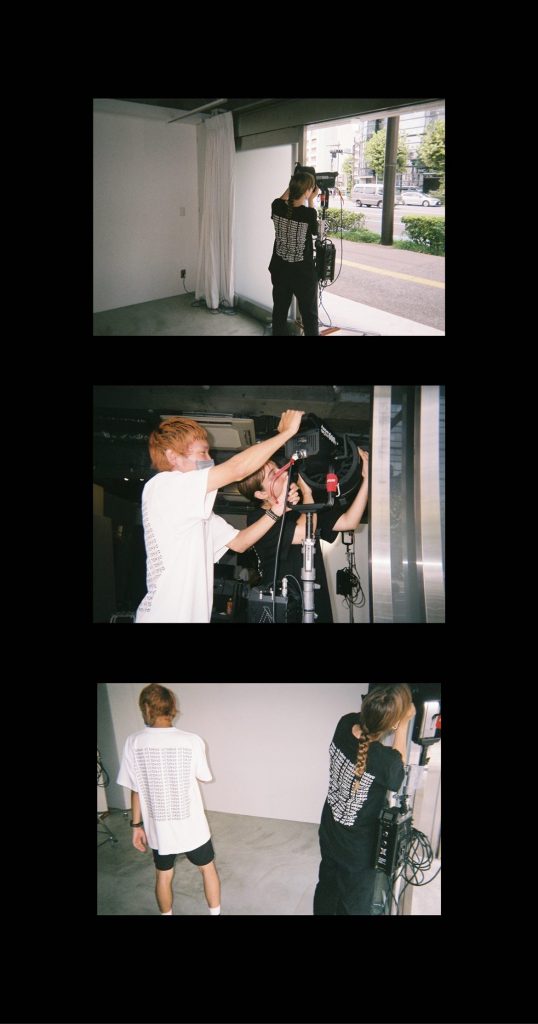
ー That's really good advice, because you would think you take the pictures and then you're mostly at your desk editing and you would never imagine that you need some strength.
I'm pretty strong for a girl. Honestly, I'm not shy of saying it. But sometimes I get so exhausted. Like I mentioned, the gimbal and everything. It's too heavy and the gear and the stands are massive. Doesn't matter if you're actually strong, you can't really reach the other side by yourself, you know? So you definitely need some muscle, some help.
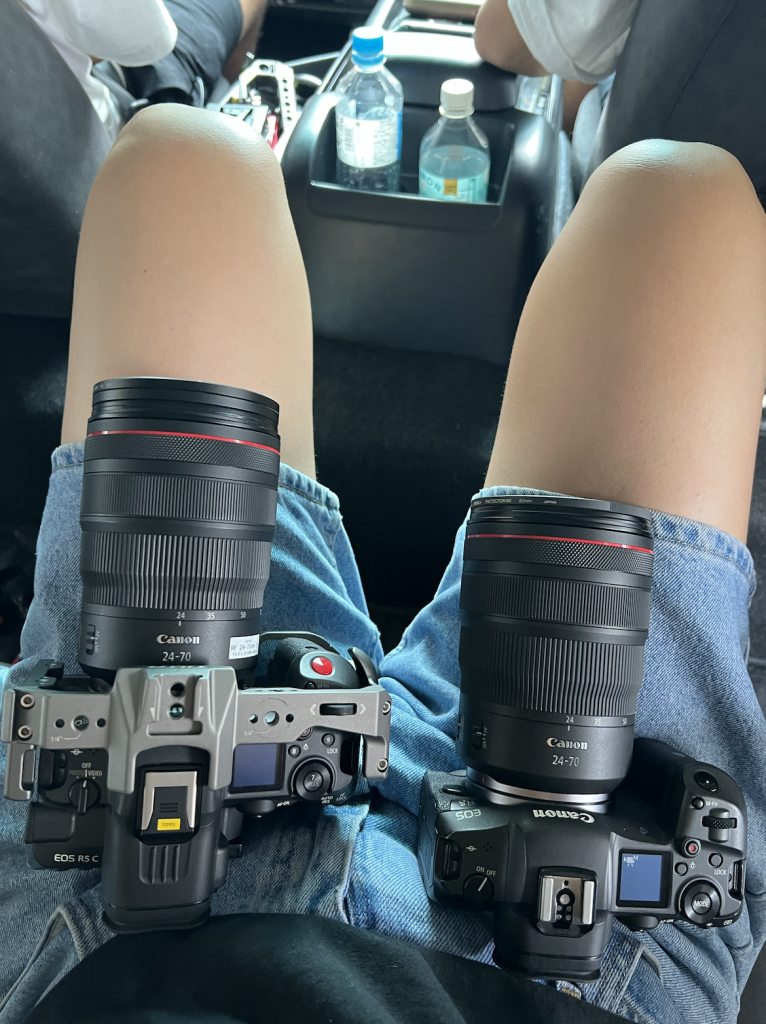
ー So that's really good advice. Thank you so much.
I really hope it helps. I wish someone had told me!
ー That's why I'm sure there will be plenty of people who will be happy you told them!
Fashion photography is mostly manual labor. That's why I can't have nice nails (laughs).
ー Why is that?
They keep breaking by lifting and bumping into stuff and lifting heavy objects. I cannot have long nails as I would hurt myself. I think it's different for people who work with bigger teams though. But when you work in a very small group where there is only you and maybe another person I think this is the case most of the time. But when it's a bigger team and a bigger crew it's way easier! The more hands at work the easier it gets.
ー Would you like to have a bigger team someday, or do you prefer actually to be with an assistant and mostly by yourself.
I currently have an assistant and sometimes work with two. I really appreciate it, because I like the feedback. When we're making plans for upcoming photoshoots, even though I'm spewing stupid ideas, I would like someone to give me some feedback. They might notice something that I haven't seen before or think of something better. It's always good to discuss these things with someone. It can be an assistant or anyone who understands anything about this world. Even someone who doesn't, it doesn't matter! But I don't really mind whether it's a big or small team. Because even if it's a very massive group of people, maybe 15 or 20, they all have things to do. Nobody's going to get in your way. At least not too much (laughs). It helps a lot when there's a lot of hands at work.
ー My last question would be, why do you do what you do? What is your “why”?
Oh, my goodness, I think that's the most difficult one!
ー That's why it's the last one (laughs).
Well, I like clothes. I like showcasing women and clothes. When they feel their best, they look their best, or they buy an item and they feel amazing in those clothes. Same for me. I like wearing what I'm wearing. It’s amazing when you put something super weird on yourself and you smile. This is one of the reasons. The other reason is the whole process of photography is something that I really, really like and enjoy. I like the whole atmosphere of working with my team to make this kind of one picture or this one setup. I like just creating with all of them to achieve this visual representation of the upcoming collection. So I just want to stay here, be in it. Just exist in this fashion photography world. Not that I have like some super deep message to convey with my fashion photography. Photography and fashion especially, can be political, can be social sciences related, can be very journalistic. But I don't really have such a message at the moment. Maybe I will have it someday, when I'm older. But at the moment I just want to stay here. I just want to take photos. Help my clients get the idea that they had for these collections. Make these women who buy the clothes, who wear the clothes, who pose for the photos in the clothes, feel amazing and have fun. That’s super important! That's what I'm trying to do on set as well. Have a little bit of fun and not stress too much.
ー Now that's important! And I think especially as, like you said, there are not many female photographers, working with maybe younger models even, I think they also might feel empowered, safer and more secure shooting with a woman who knows how to present them, how to make them feel safe.
I've been told that women have a different perspective on fashion photography than men.
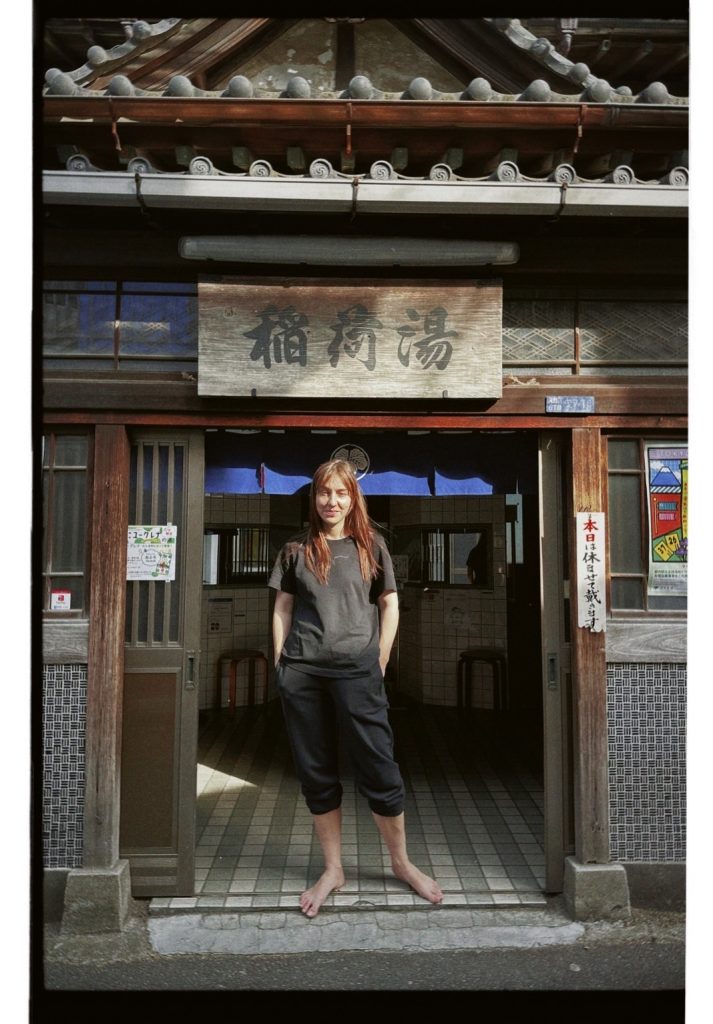
It's not necessary to overthink, since I feel that most of the artistic work or creative work is mostly driven by who you are and what you like.
Ivana
ー Would you agree?
Um…I'm not sure. I feel like not between genders, but genres of fashion photography, people have different views on it. They are inspired and influenced by different things. In my case, street photography. In other people's cases, maybe their journalistic work or something else. So I think all of that mixed together with their personal views on life and on the clothes makes it so nice to look at. I really like it. That's why I want to stay and keep doing this until I'm old and tired. Maybe afterwards, too. This is the thing, I don't think you ever have to retire from photography. Unless artificial intelligence replaces us all. But even then it's okay to take pictures!
ー It's so cool that you got the idea to become a photographer from....was it a classmate of yours who just said you should do it?
It was not a classmate, but...an anonymous source (laughs).
ー This anonymous person suggested it and now you even think about doing it forever. That's so cool.
But it was always there, I was just a big coward. Everyone needs a little bit of push.
ー And maybe seeing you, somebody else will feel the same!
I hope so. I really do hope so, because that's another important thing. I wish people would stop overthinking this thing so much. It's not necessary to overthink, since I feel that most of the artistic work or creative work is mostly led by or driven by who you are and what you like. Also making bad work is also work. I know it sucks. Mine sucks too, sometimes. It's okay, we failed this time, but next time we'll be better. Also, it's a learning curve. You know what you failed with, so just trash it, put it in a recycle bin and apply for the next time. You can't be successful every time you're creating. You can't be a robot that's going to make the perfect packaging every time (laughs). It can suck sometimes, but it's important that you try the thing that you had in your head.
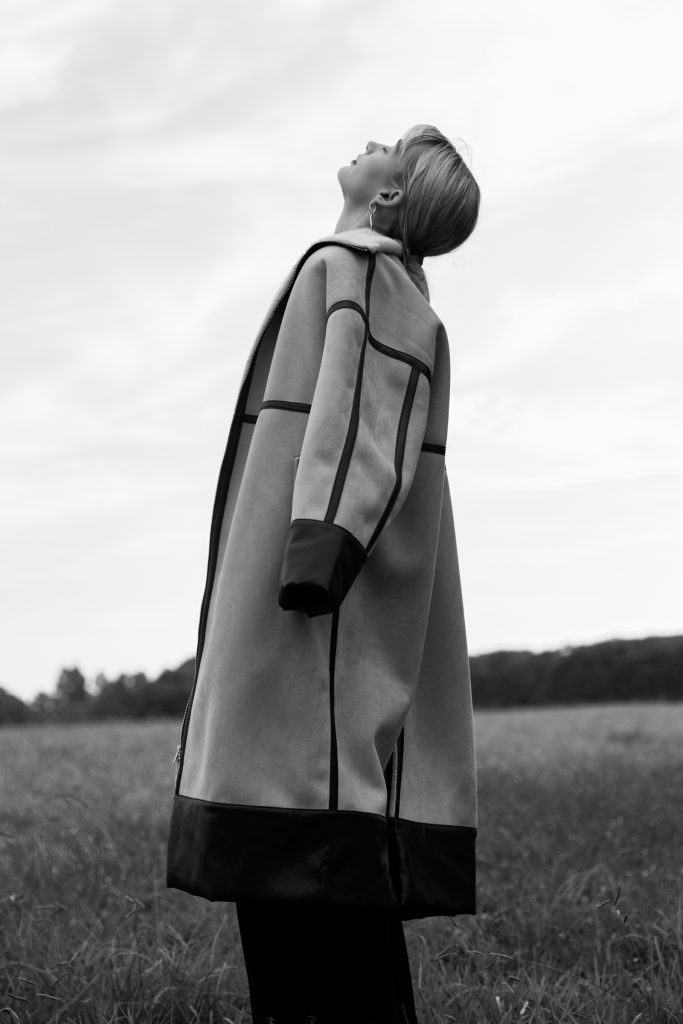
ー Yeah, I think even Ed Sheeran said that he needed to get bad songs out of his system for him to be able to write good songs. So I think that when we start we feel like, "Oh, what I made is not that good", comparing our work to somebody else's. However, the great works in the world that we compare to our own work to may also have been created by using many bad works as a stepping stone.
But I also think that there is an audience for the bad work too! For example, people who are afraid to post their content on TikTok. Why would you be afraid? Because someone might like it! Why not? Why would they hate it? So just post it (laughs).
ー You don't have to hide it, just post it (laughs).
Yeah, really just post it. It's okay. Also, even if they slam you in the comments, read the comments. Maybe you can find something interesting there that can be applied for next time.
ー It sounds like a really positive way and maybe even the most fun way, rather than hiding until you're perfect.
No, your work doesn't have to be perfect, it's okay!
ー That's cool. That's a really nice ending, I think, on a positive note. So thank you so much for your advice and for sharing your experience. And I'm really sure it will be like a push for someone to get out there!
I really hope so.
ー Thank you so much for your time!
Interview: Mazlina Olga
Photography: Micic Ivana
To find more about Ivana, check out the following links!
INSTAGRAM
WEBSITE
